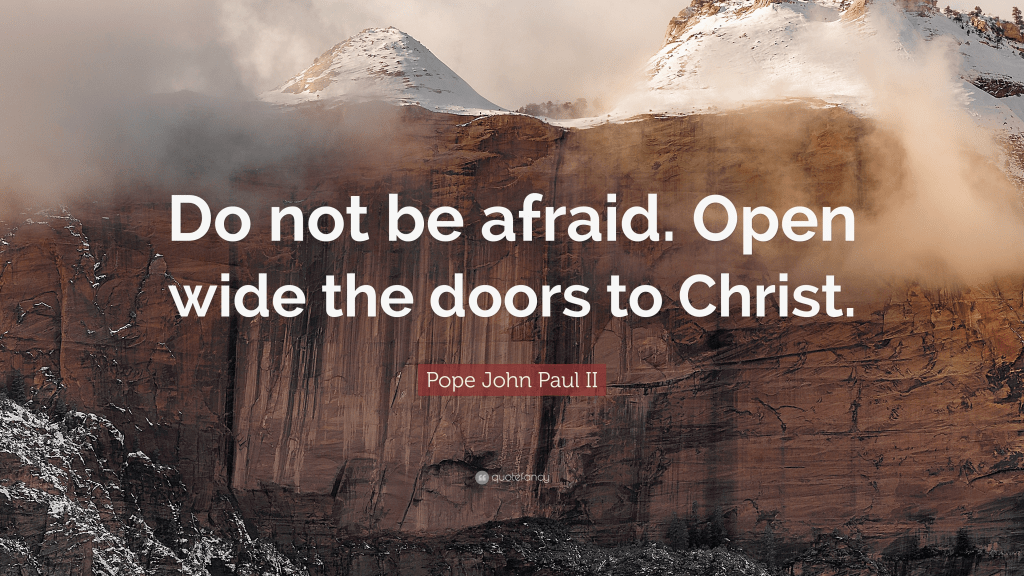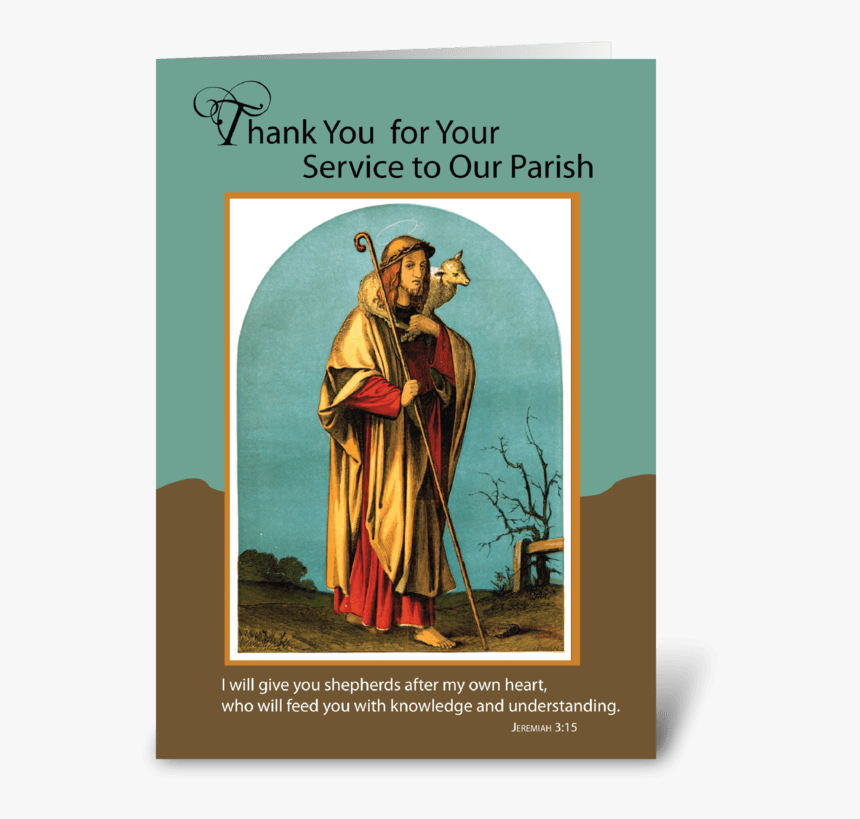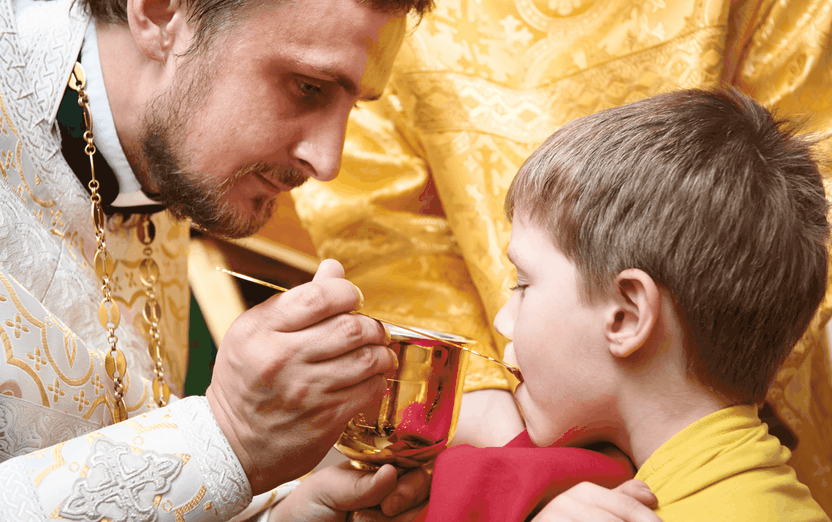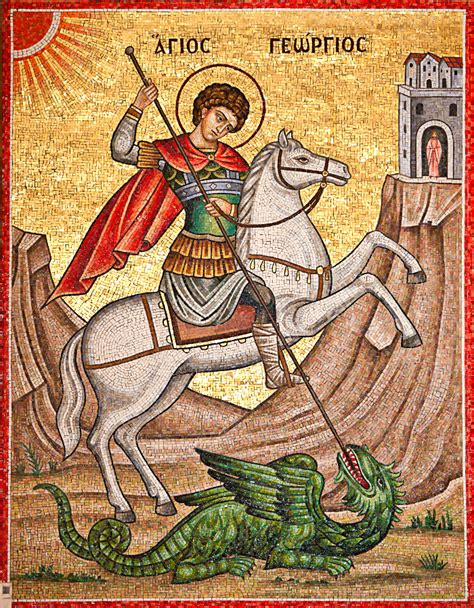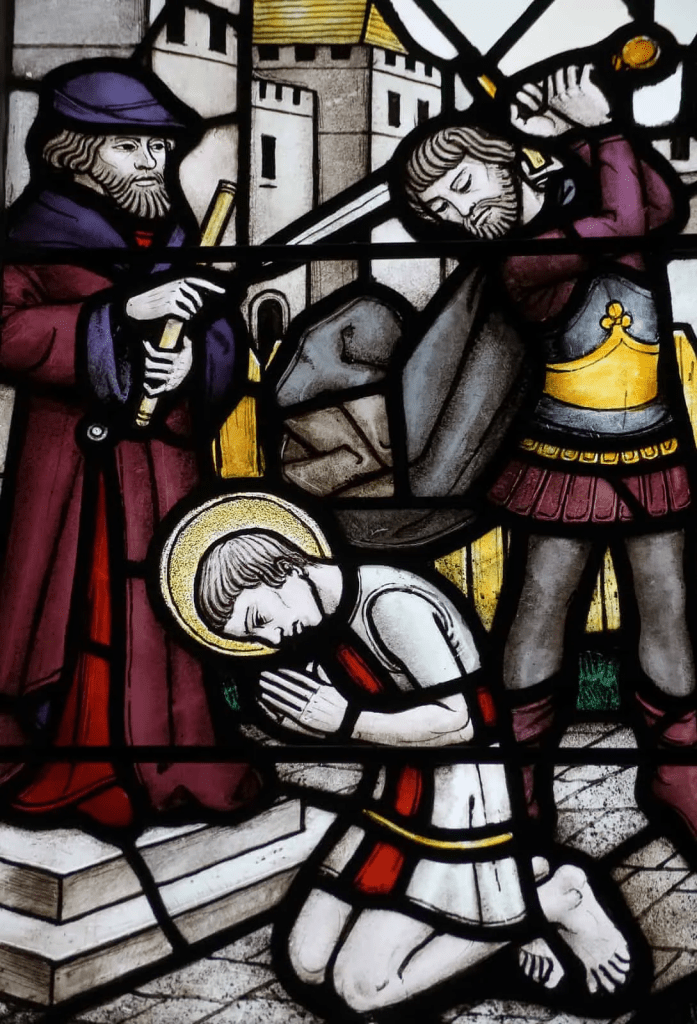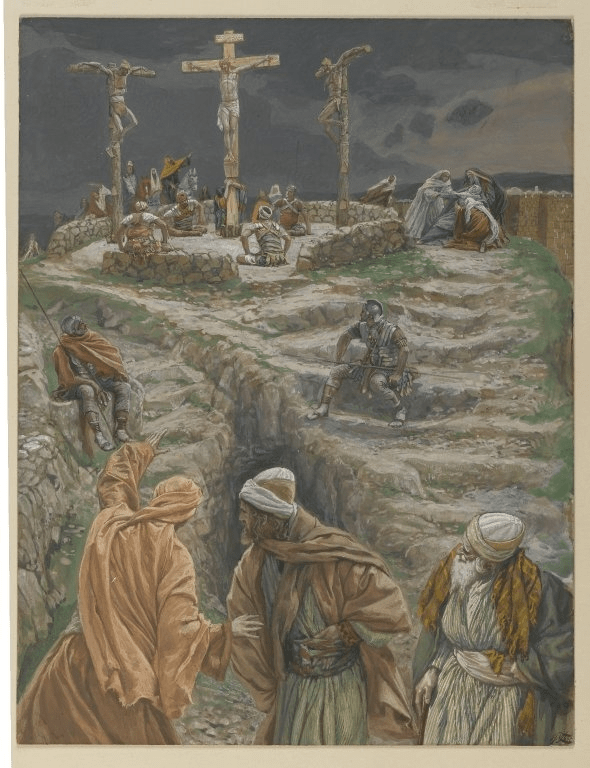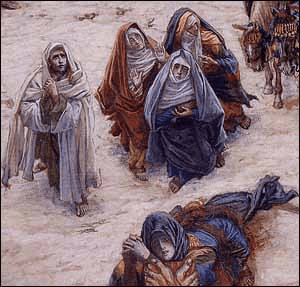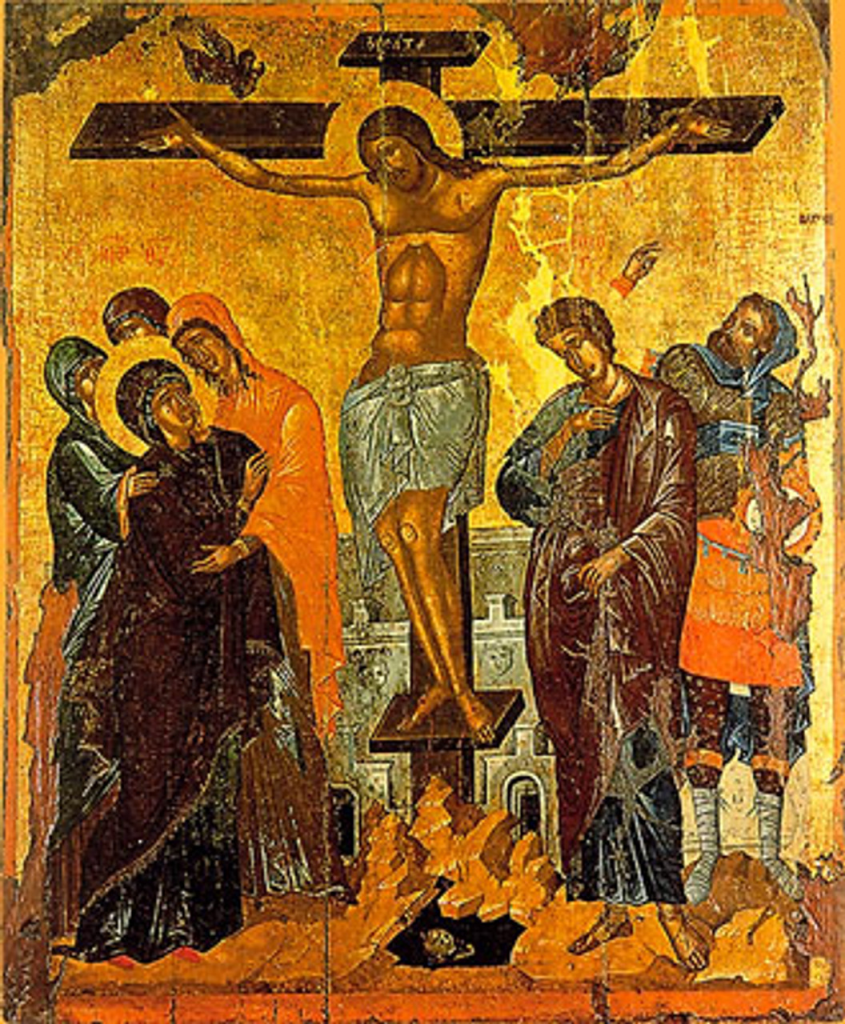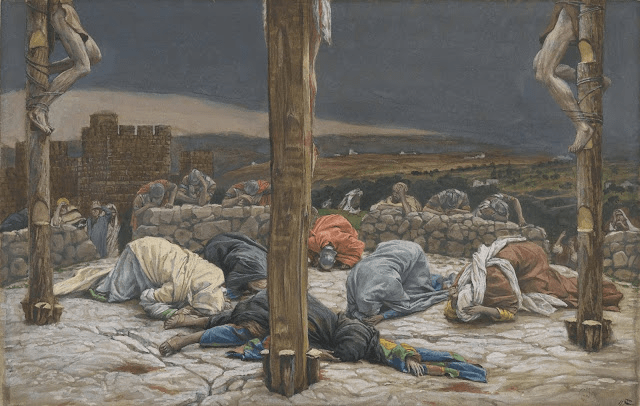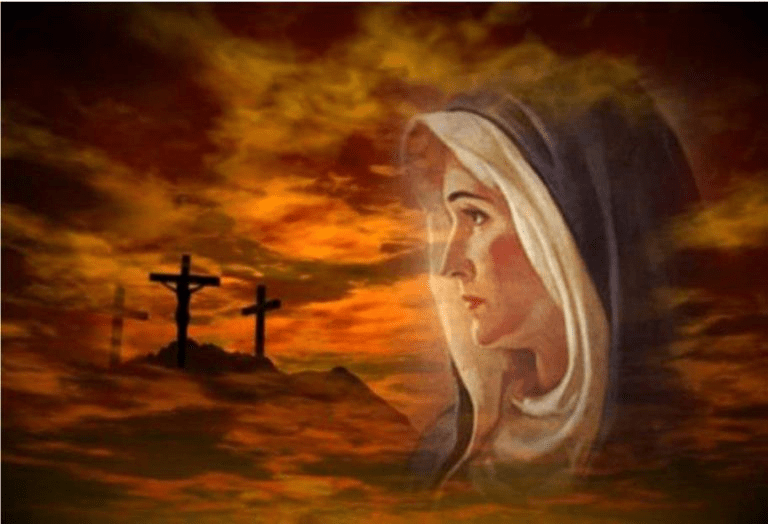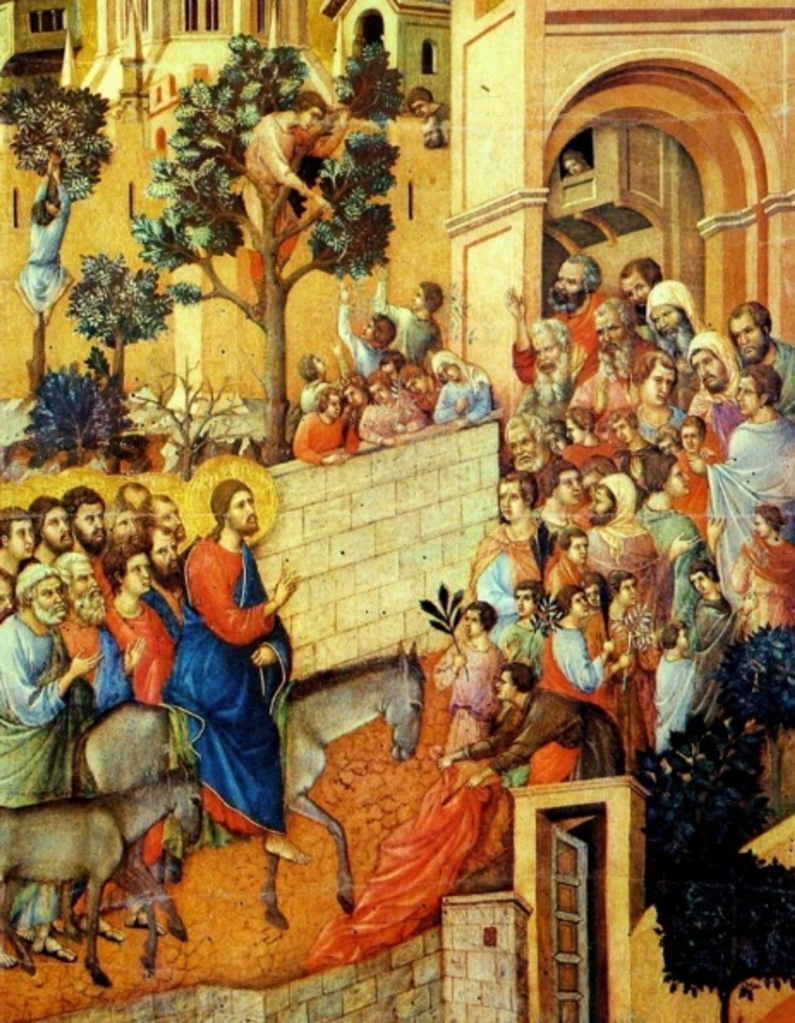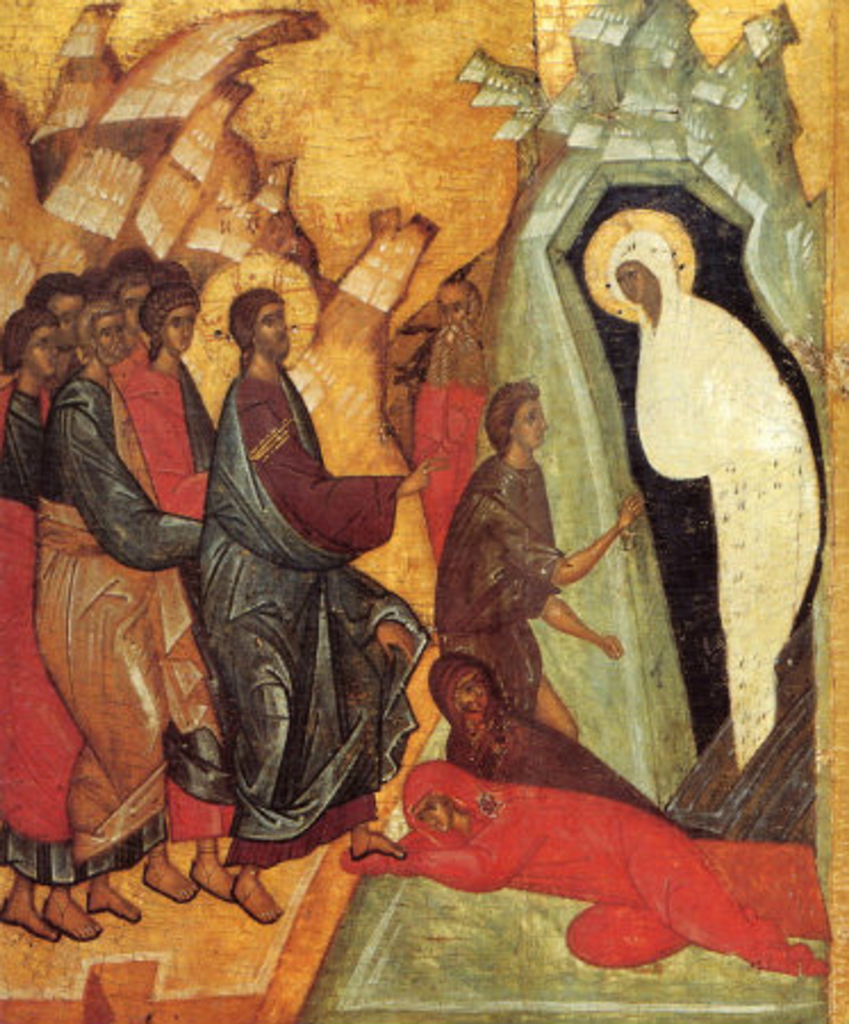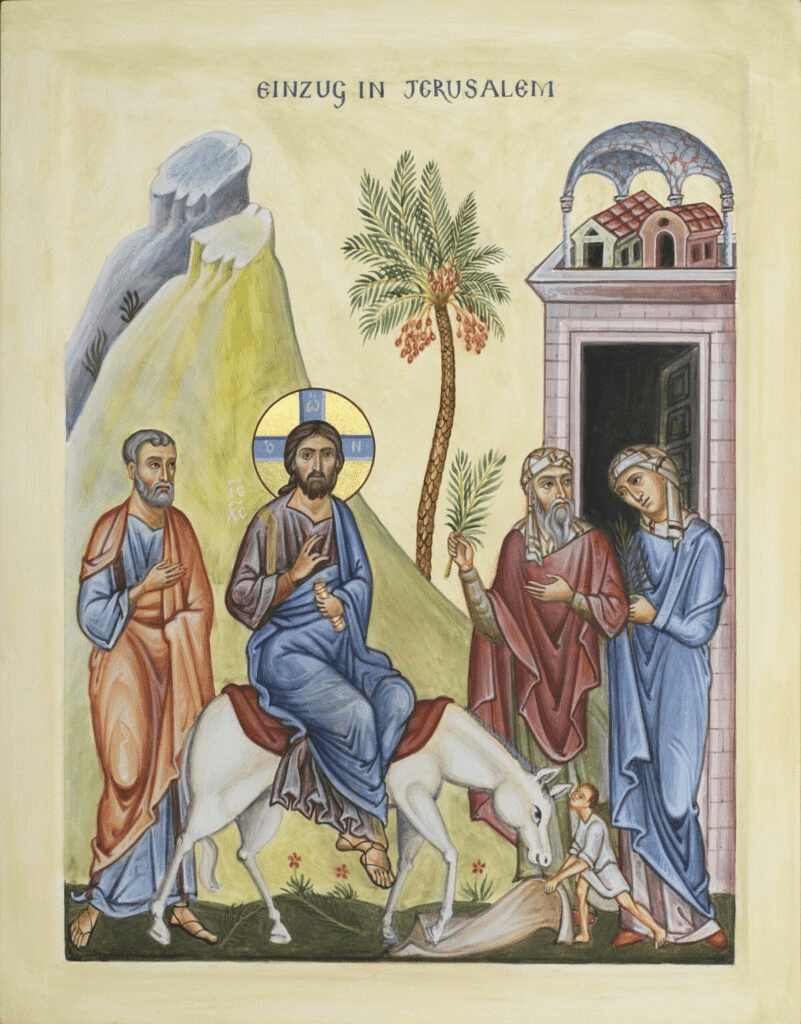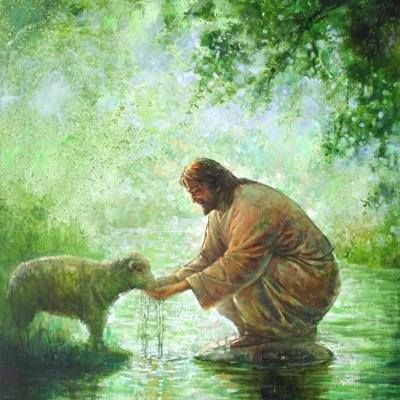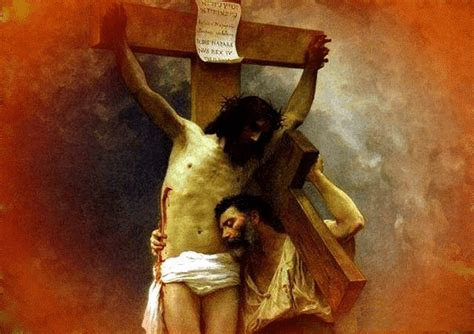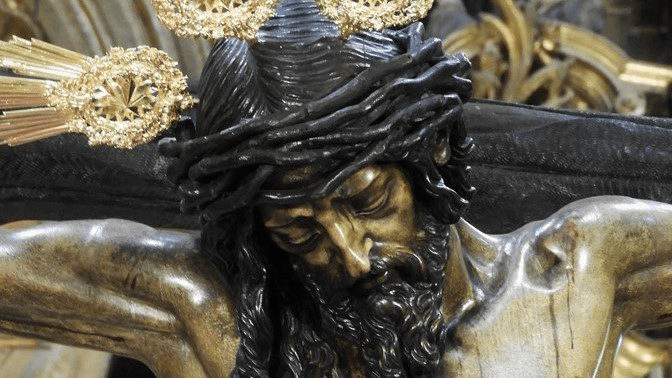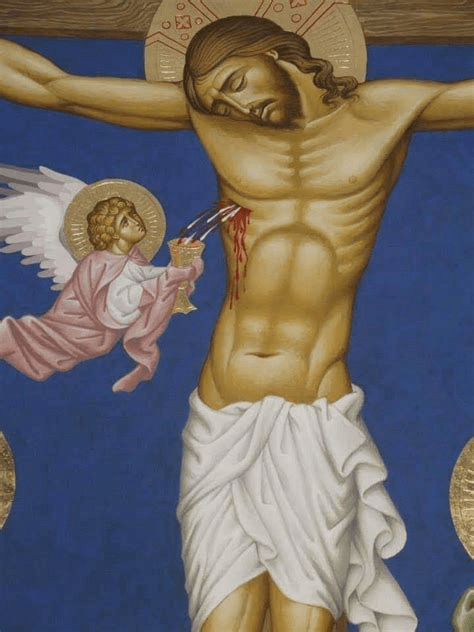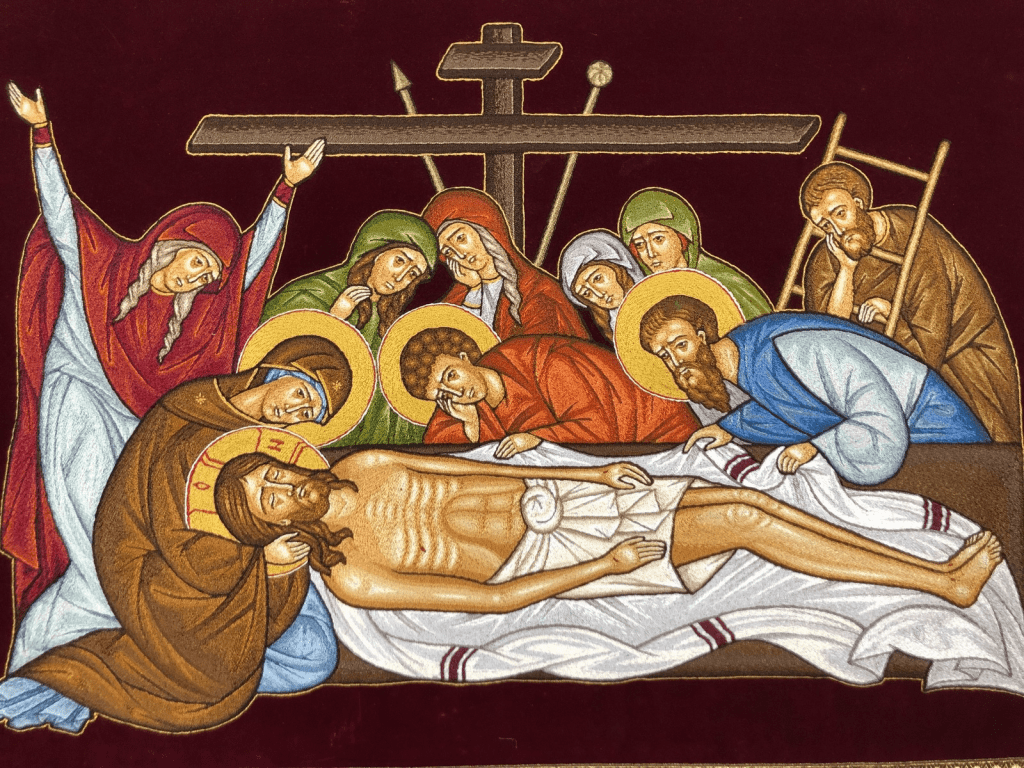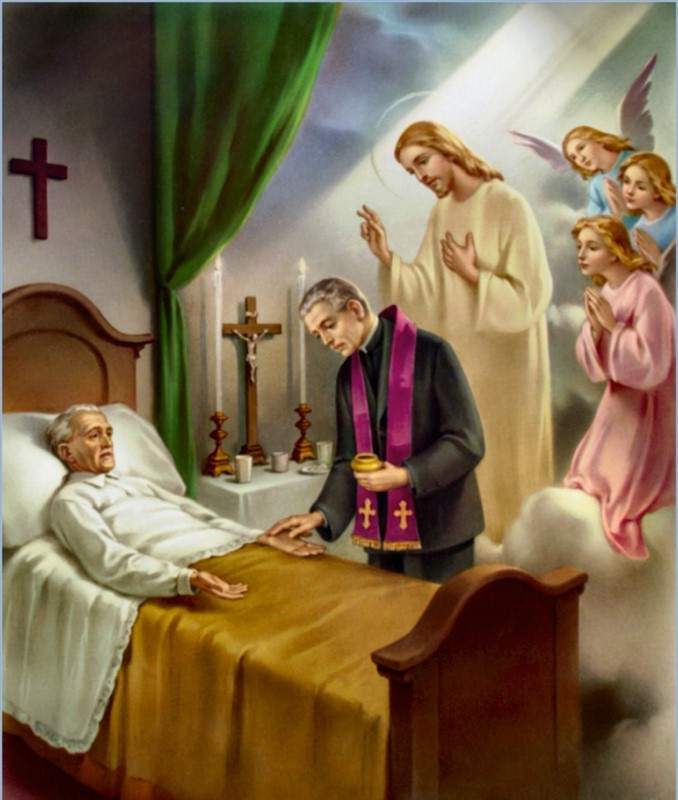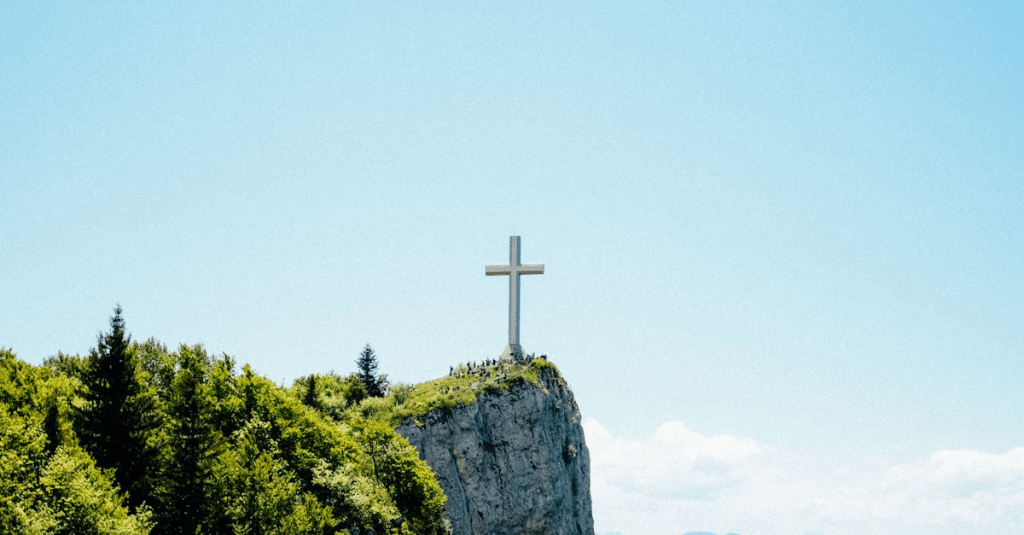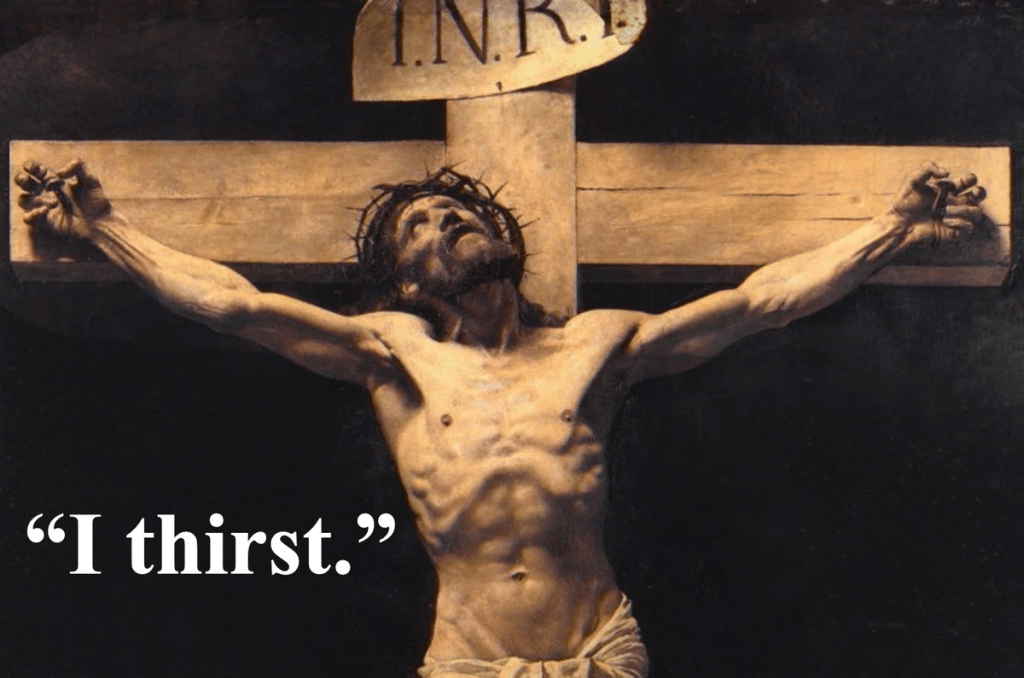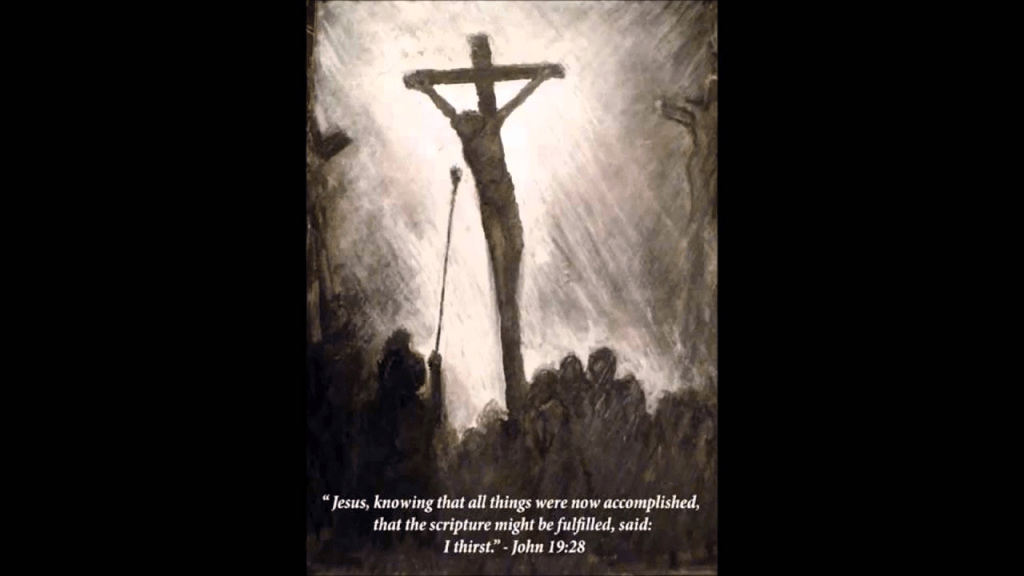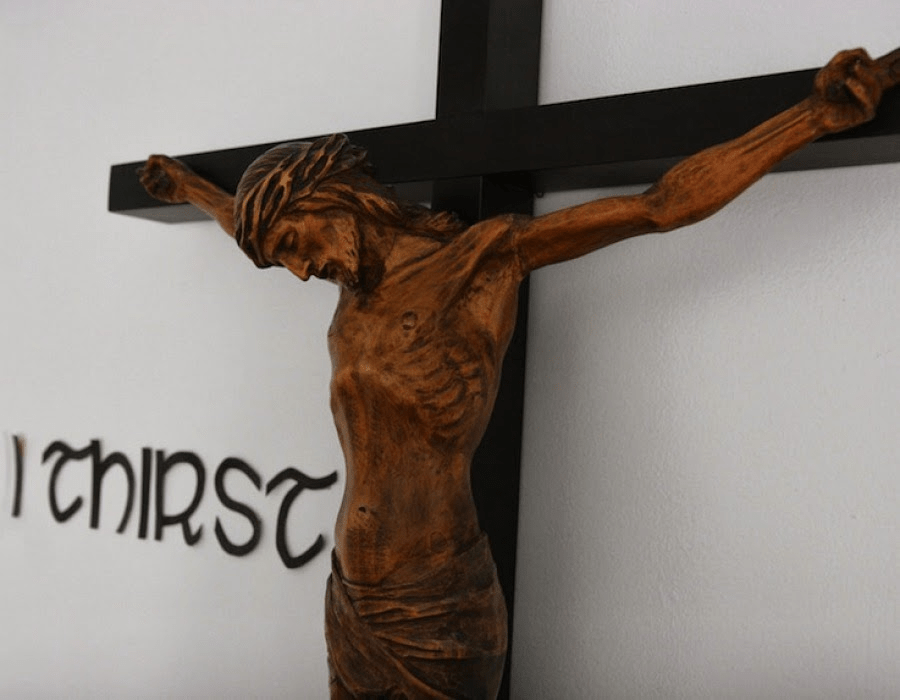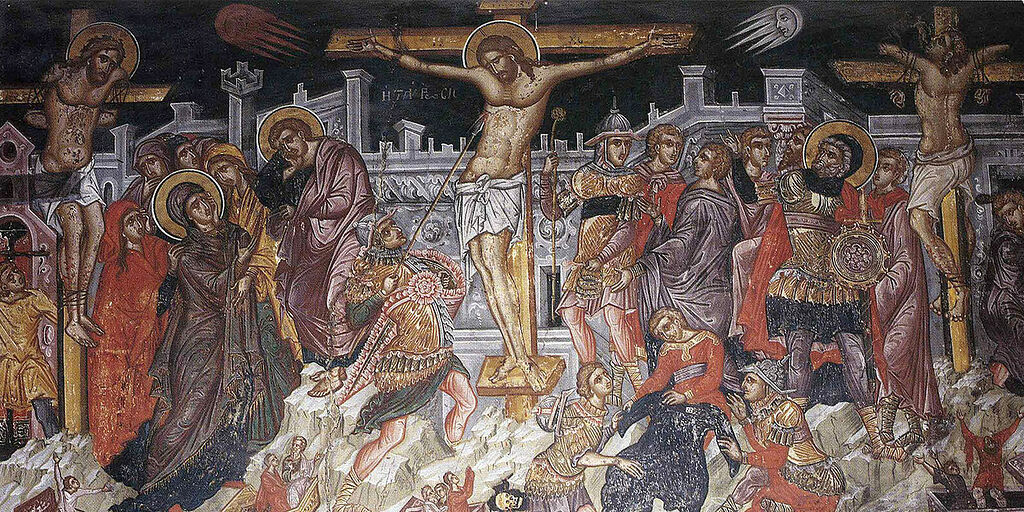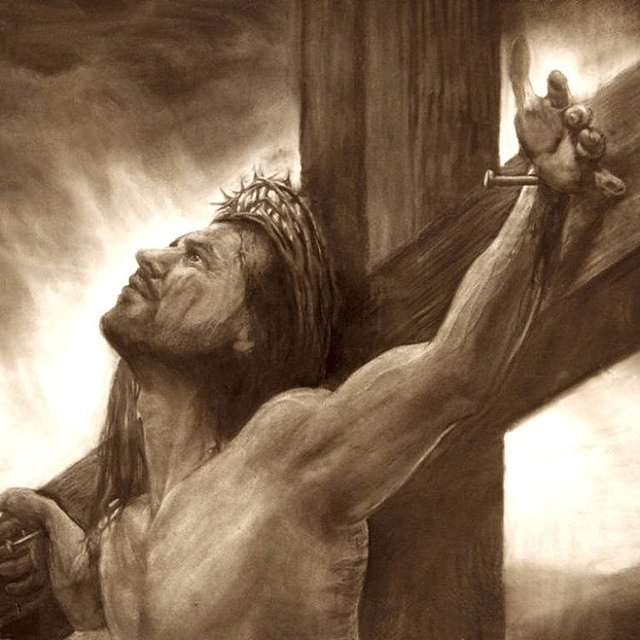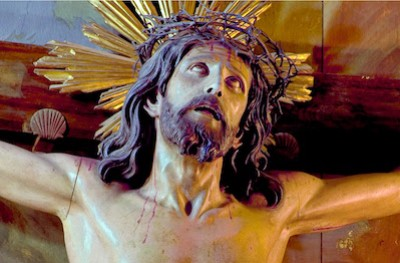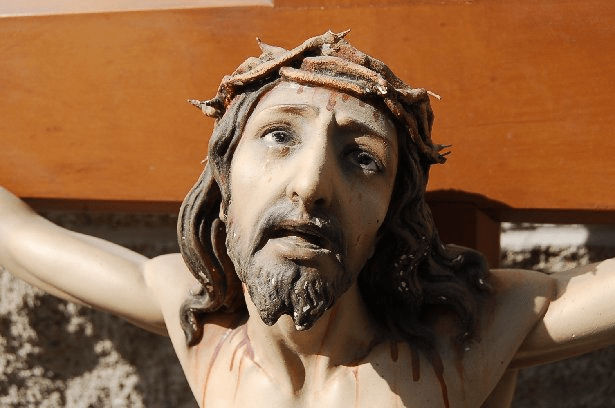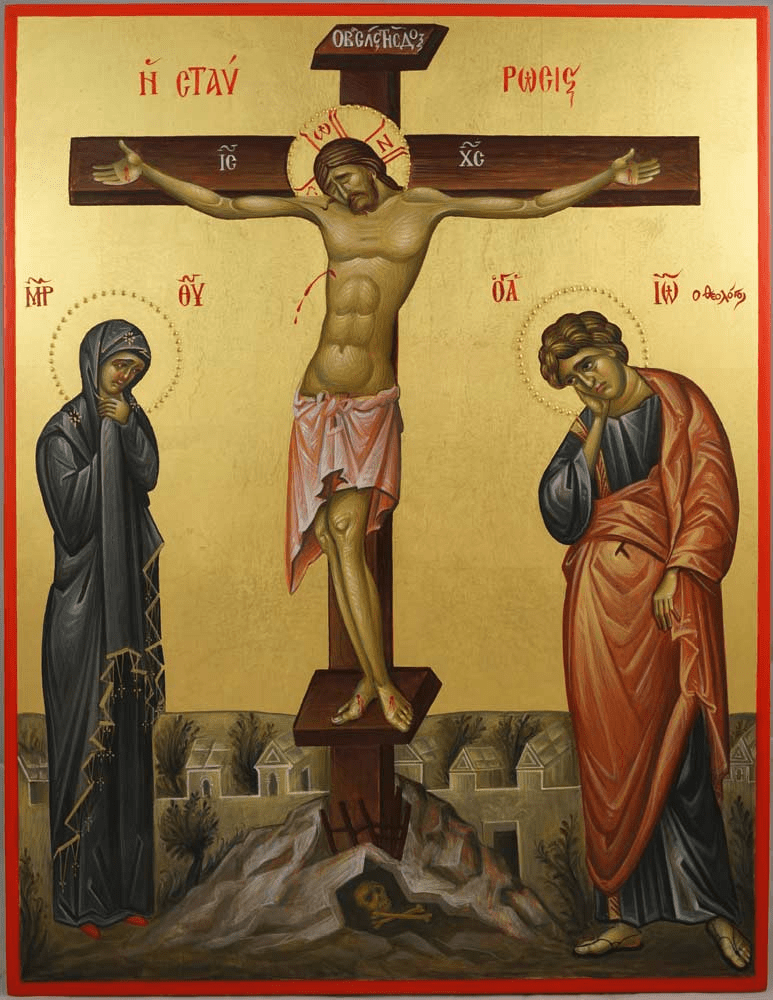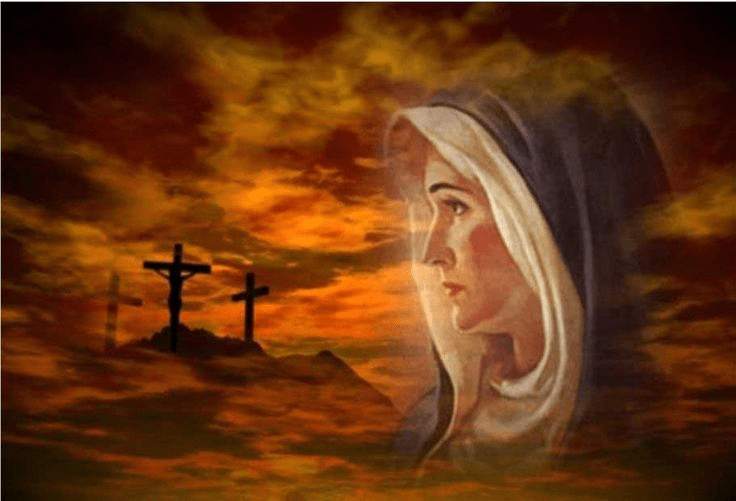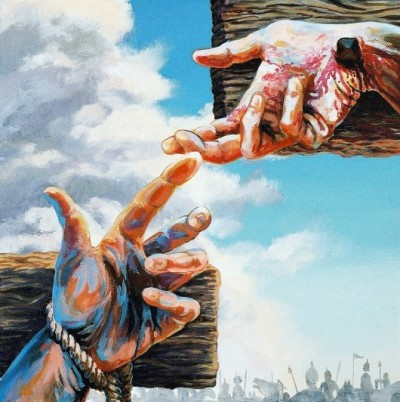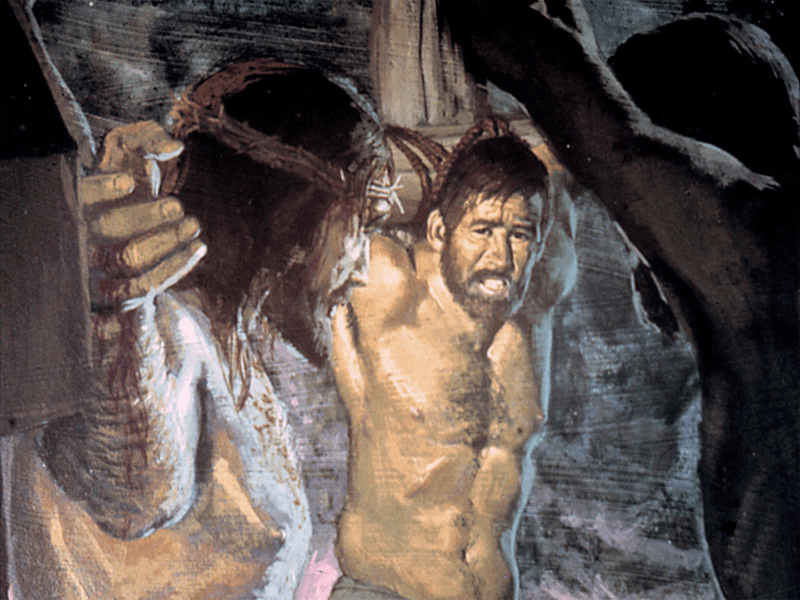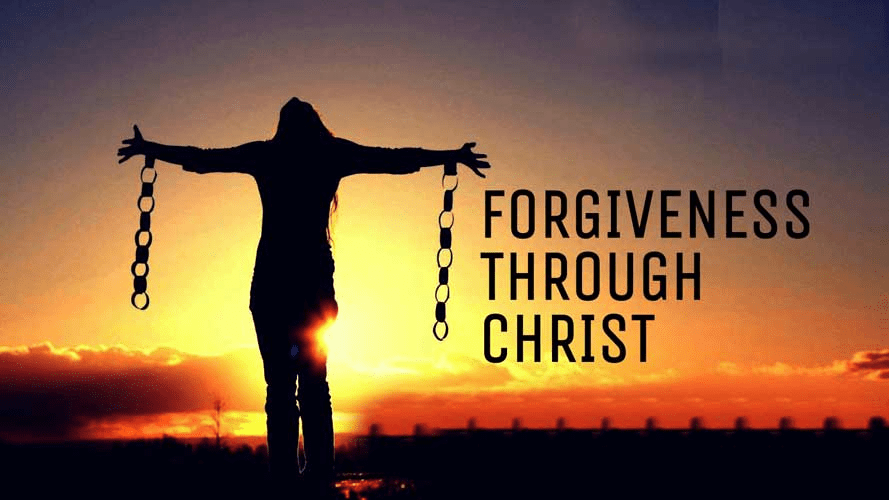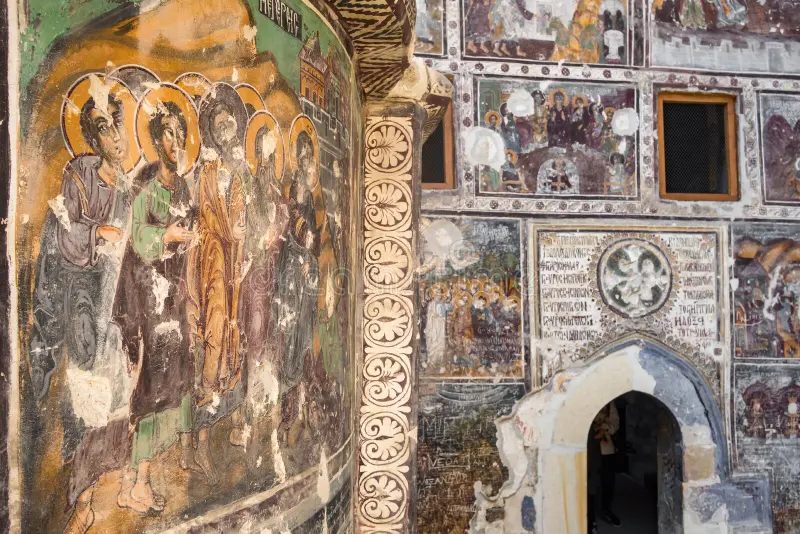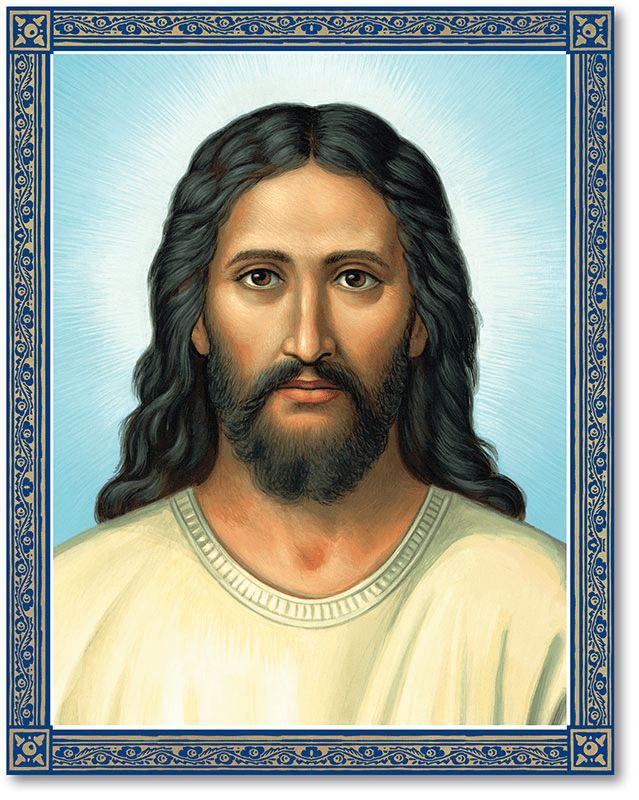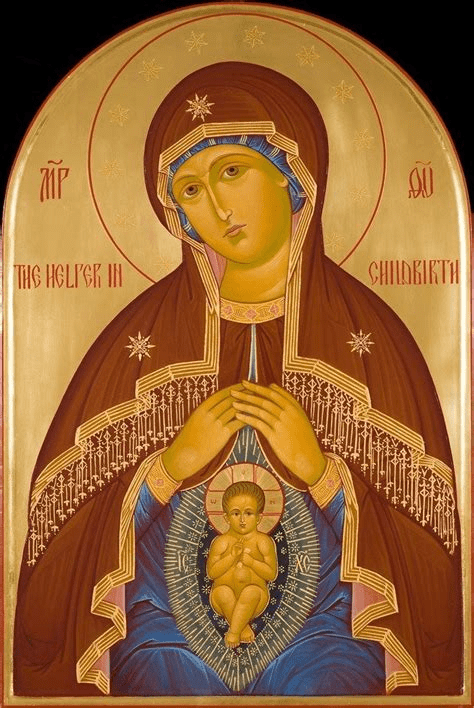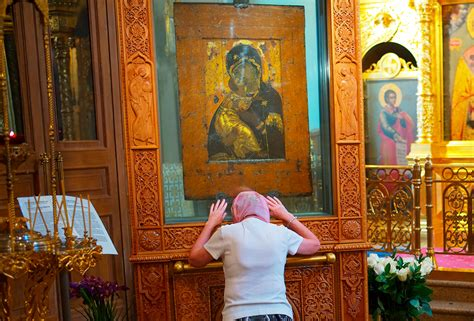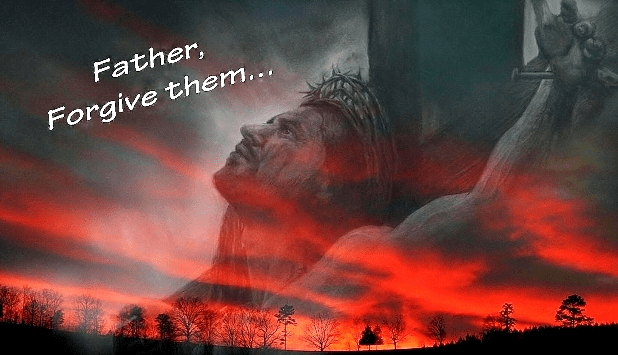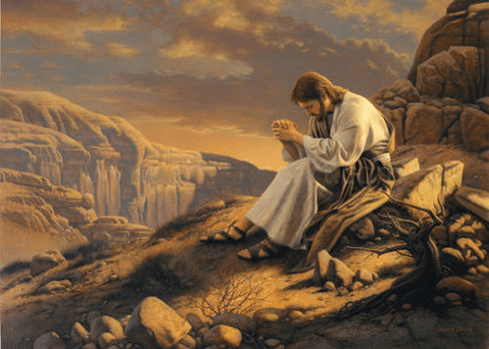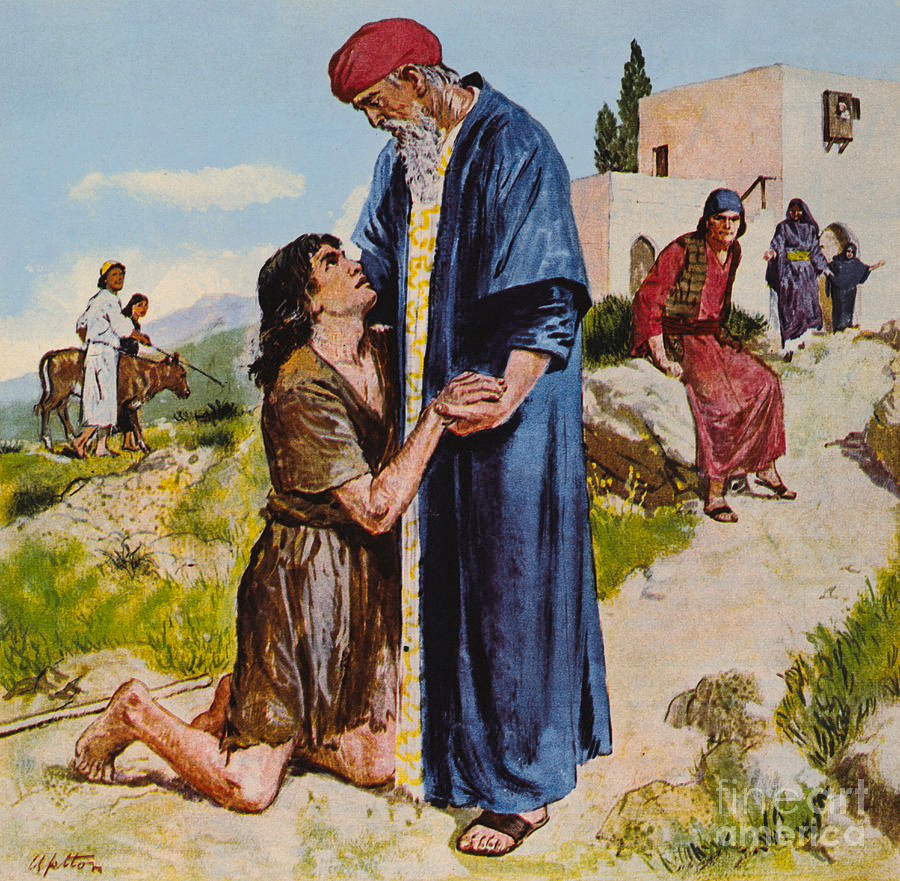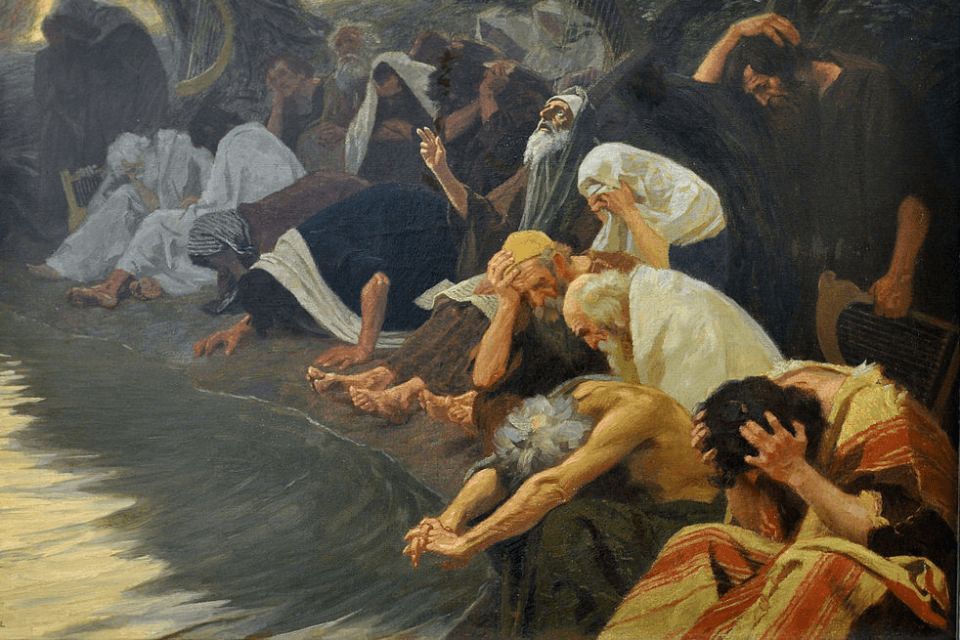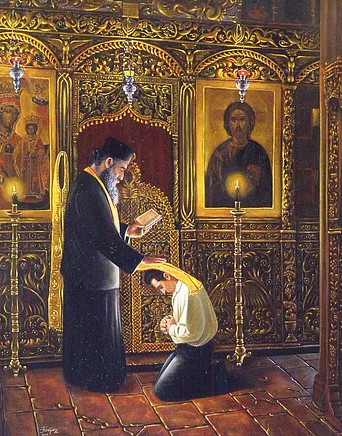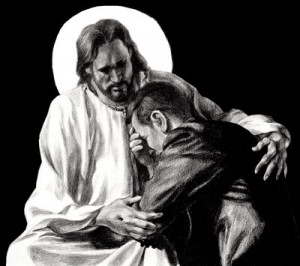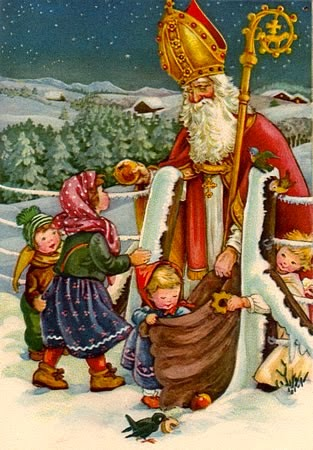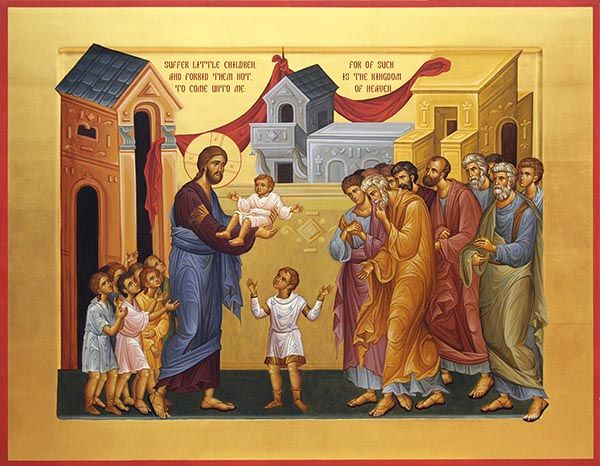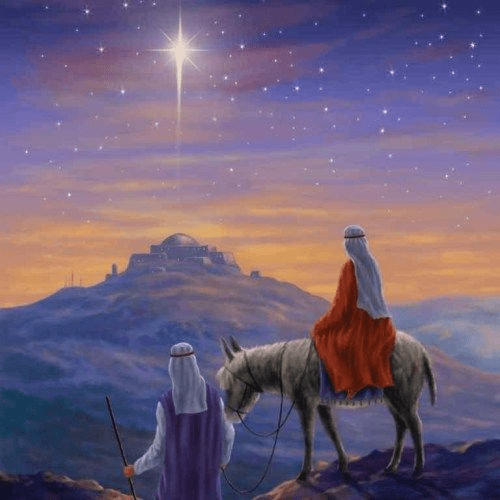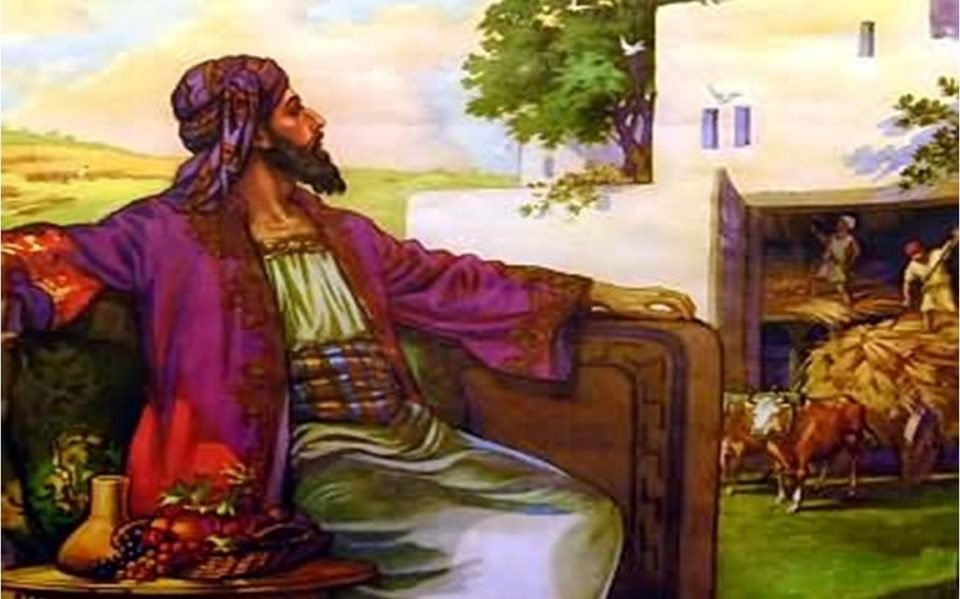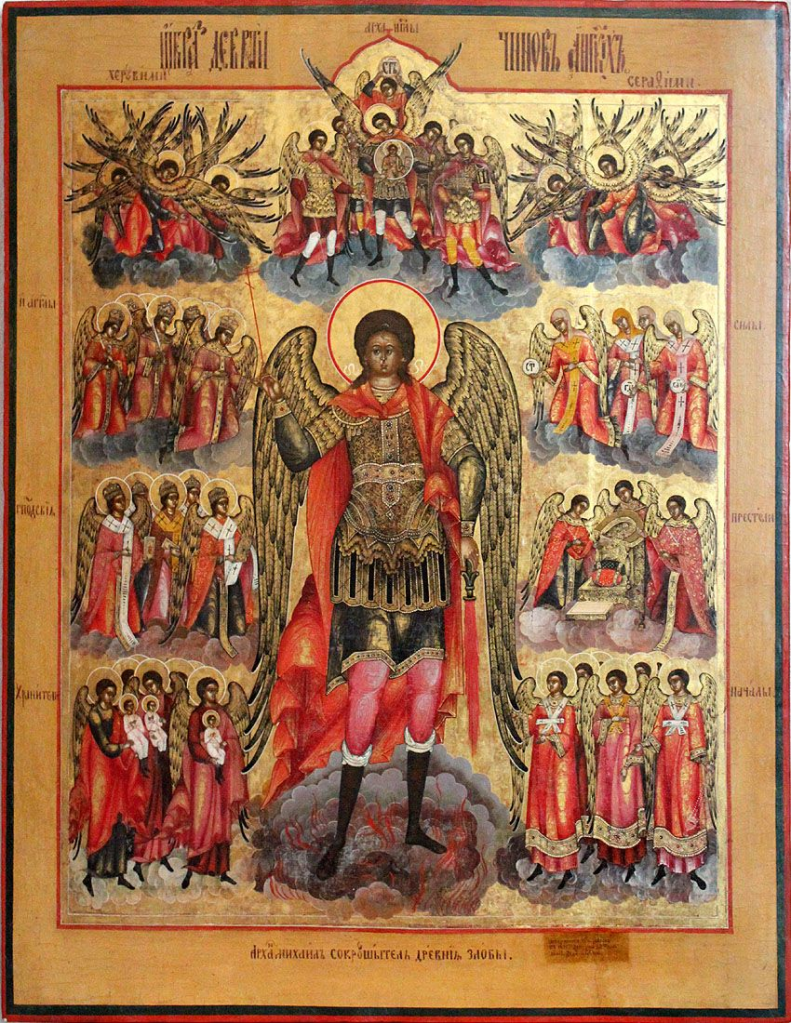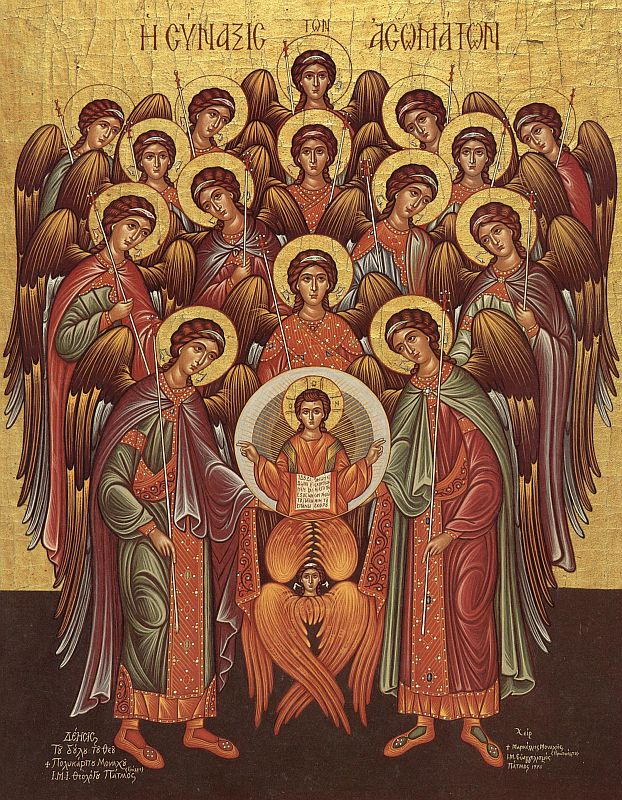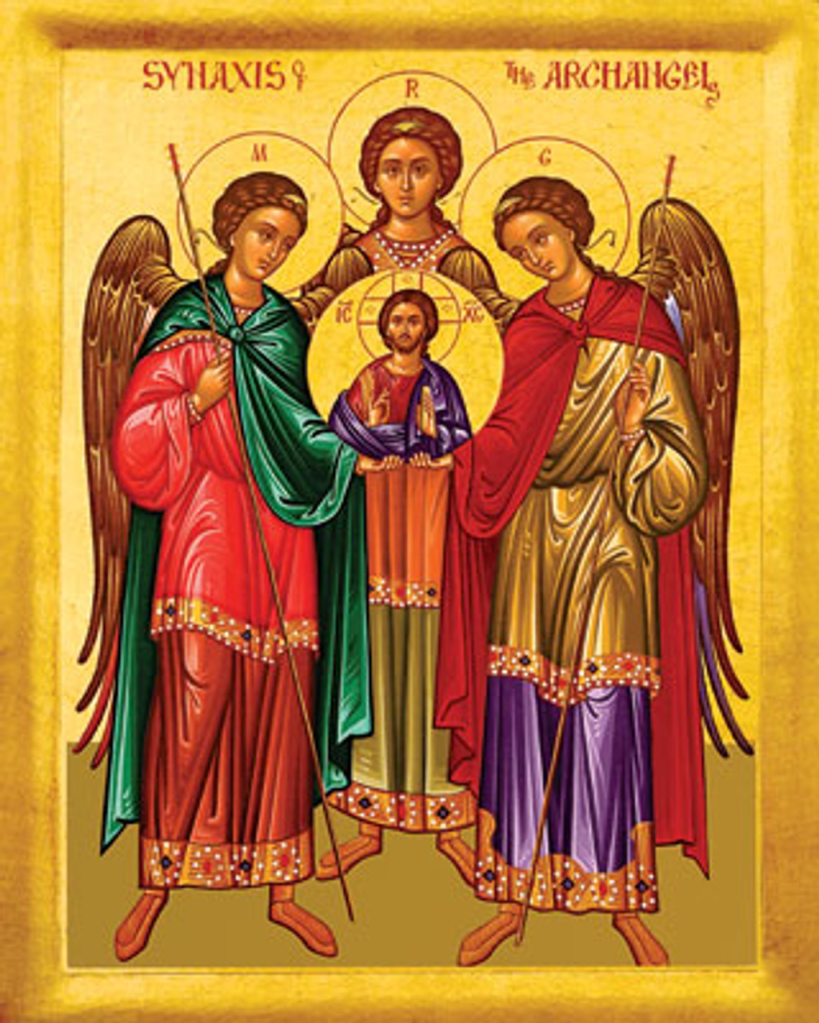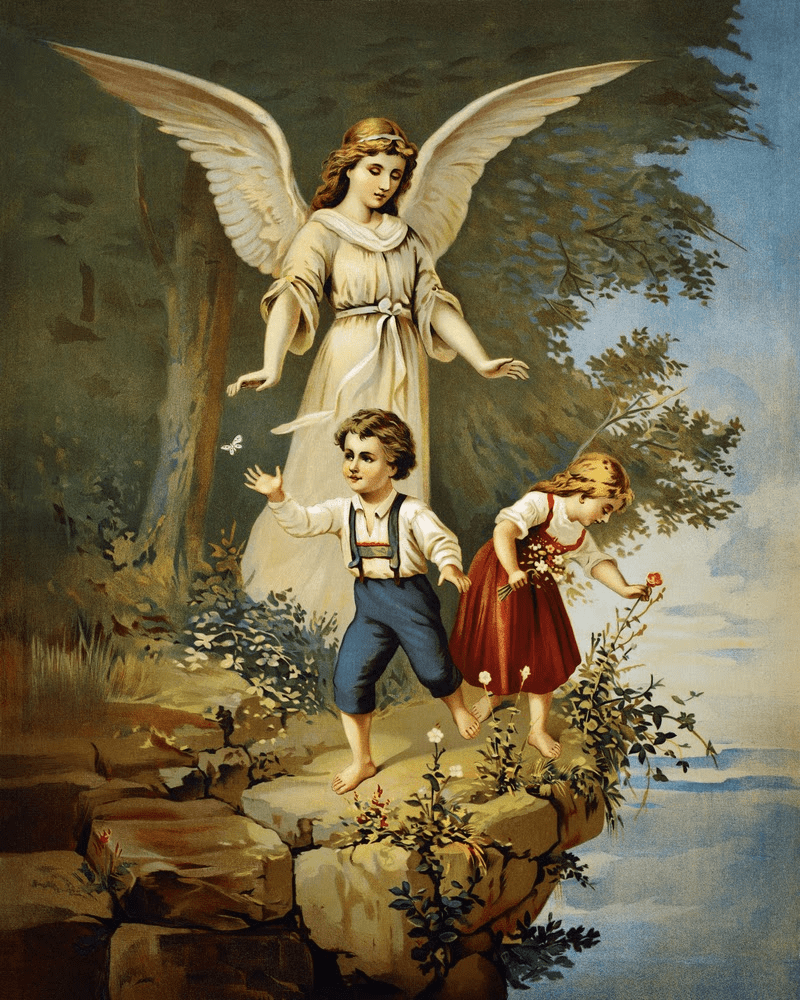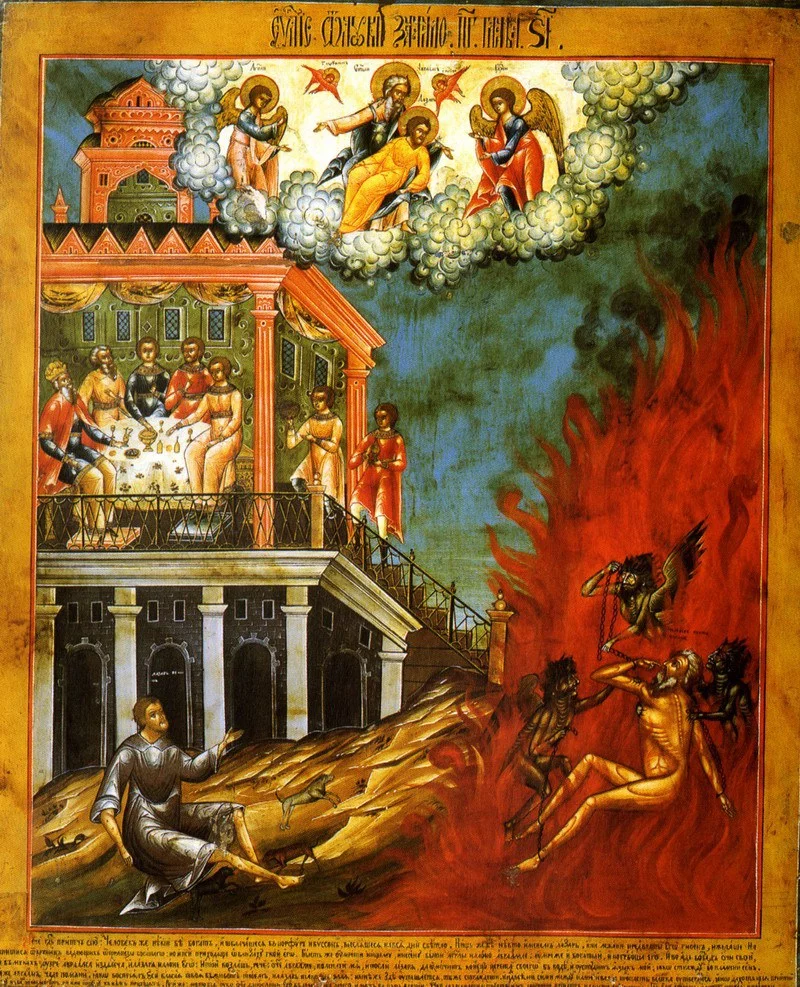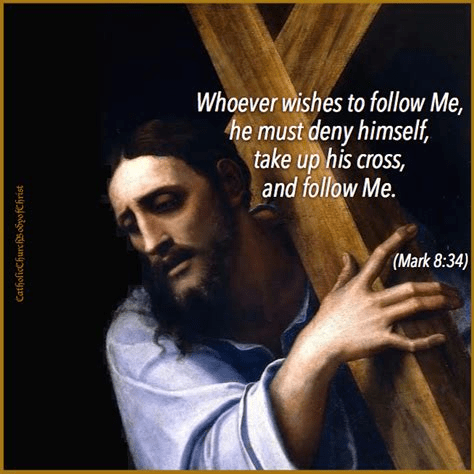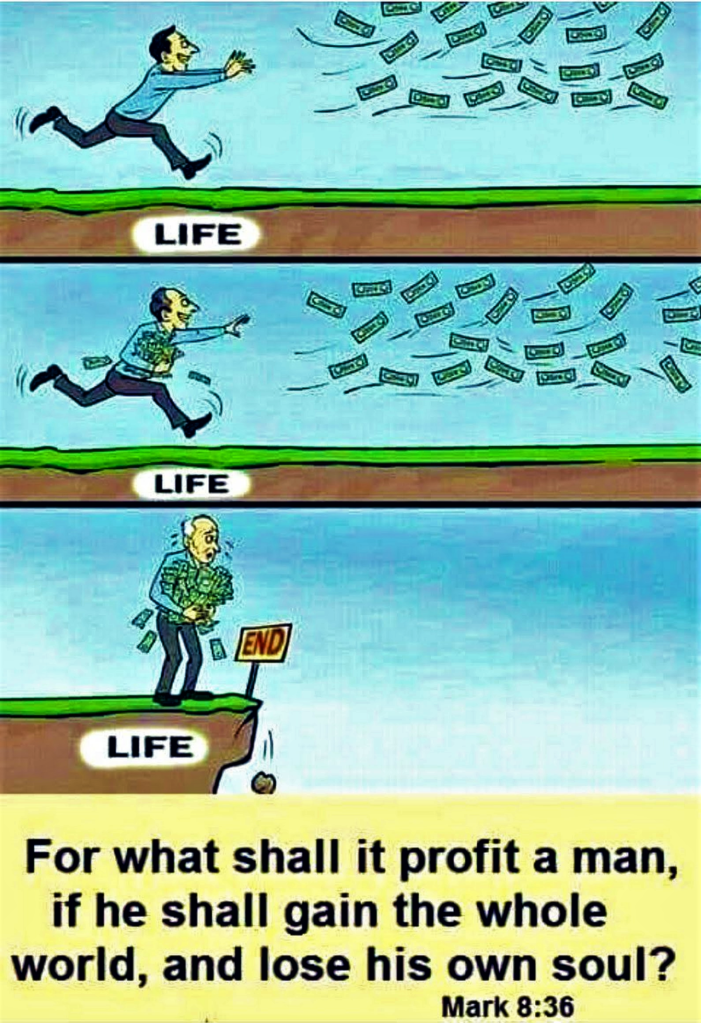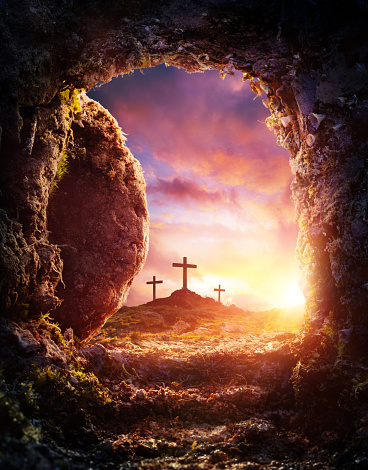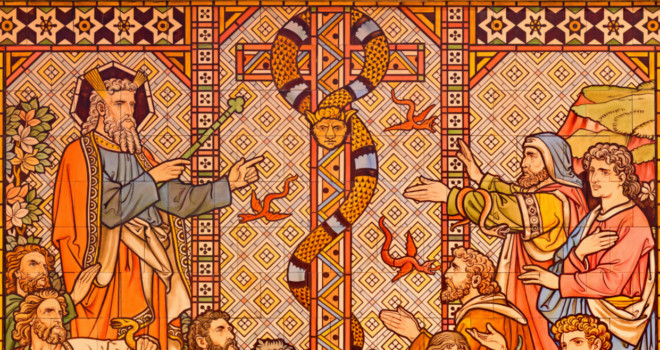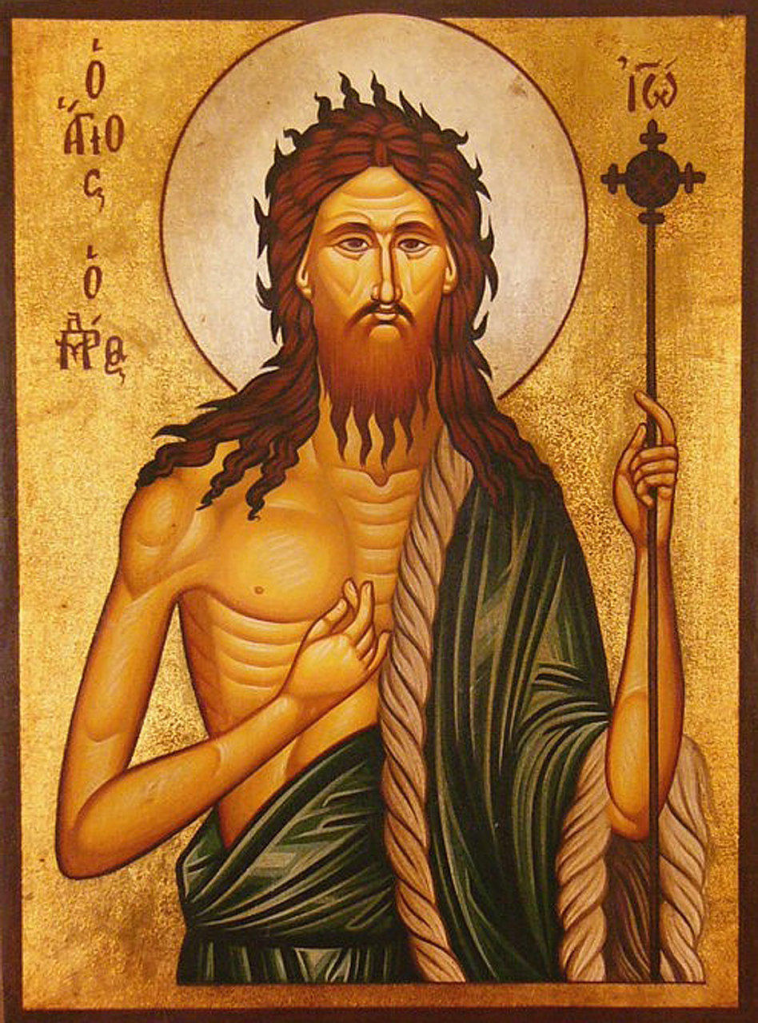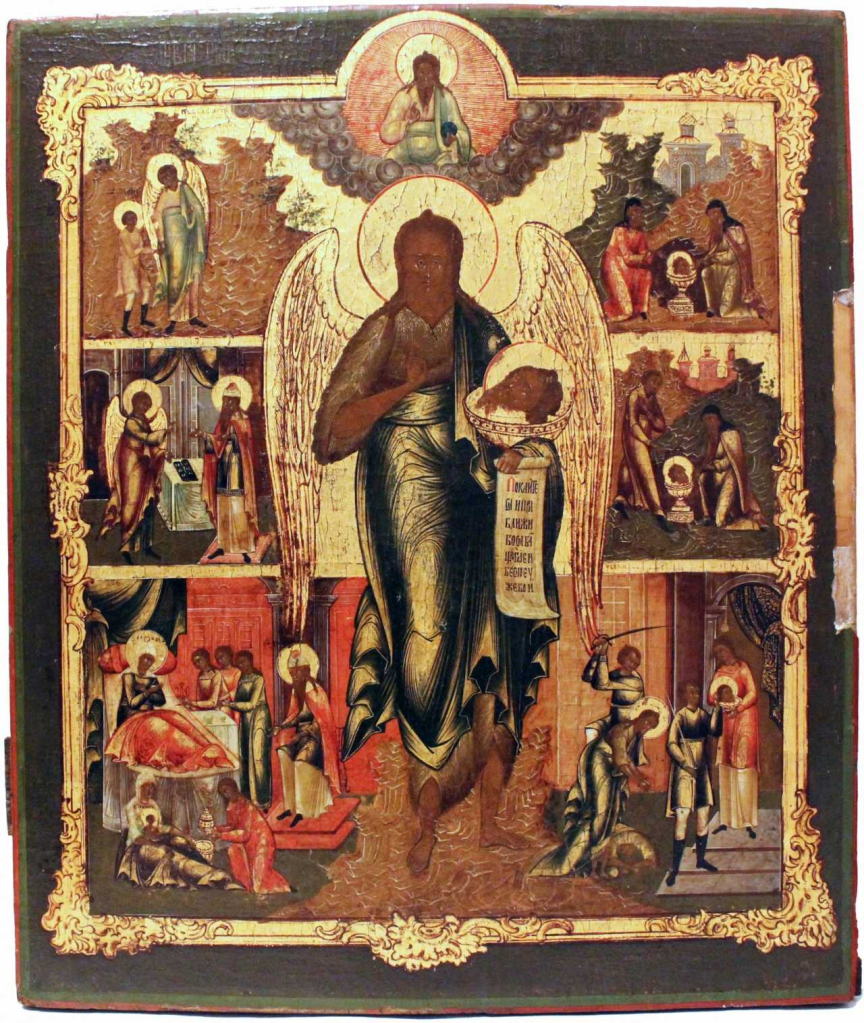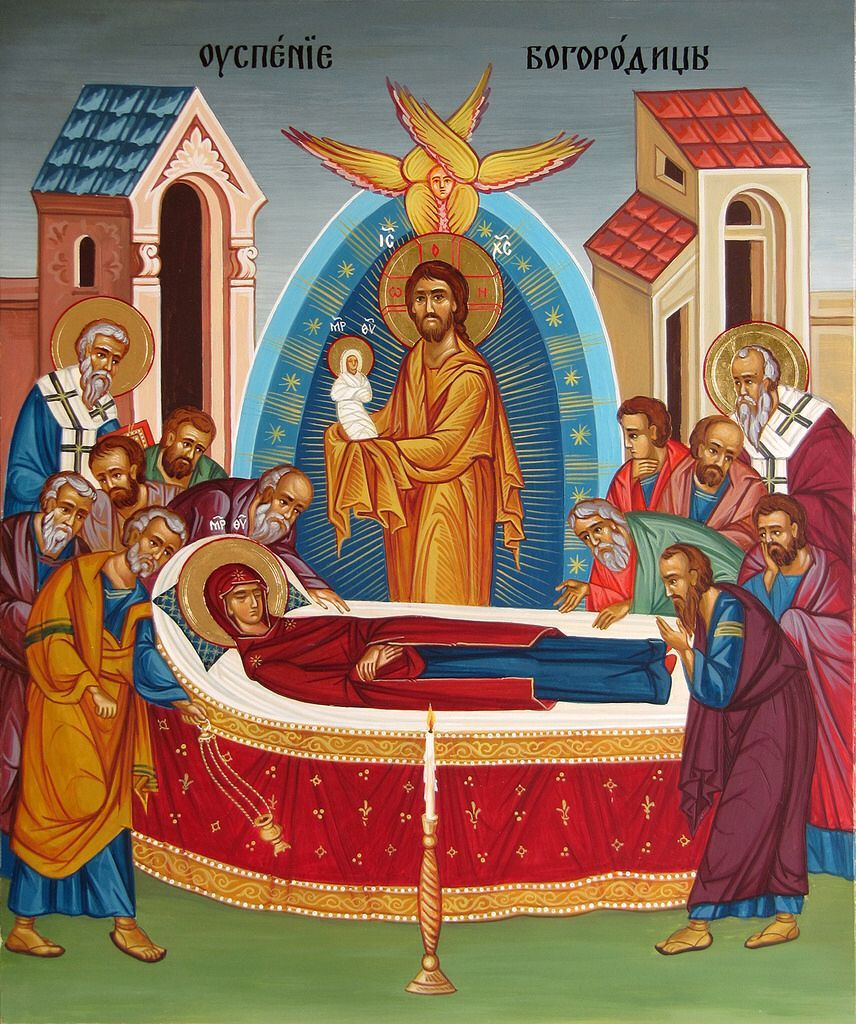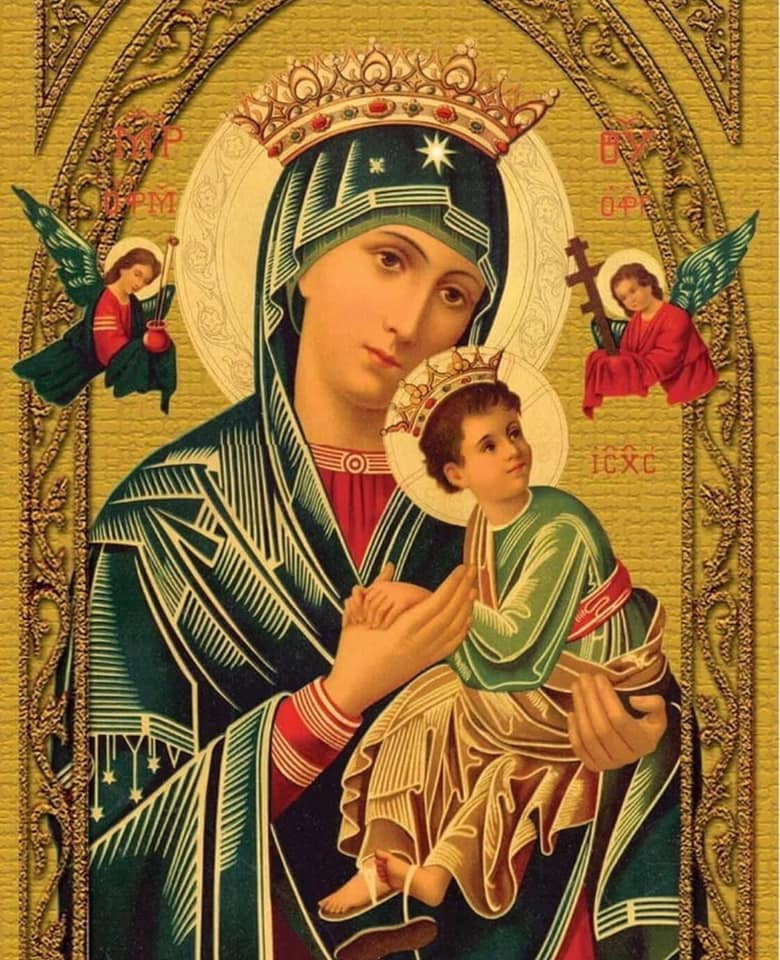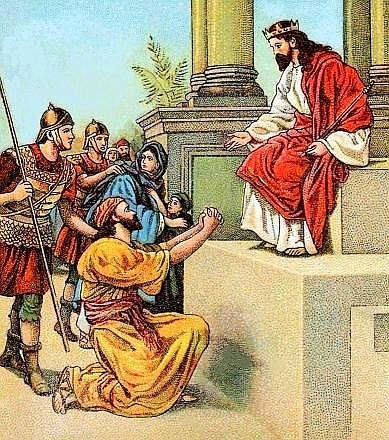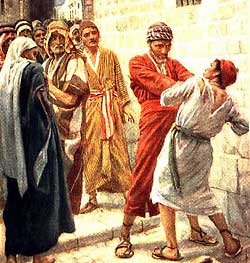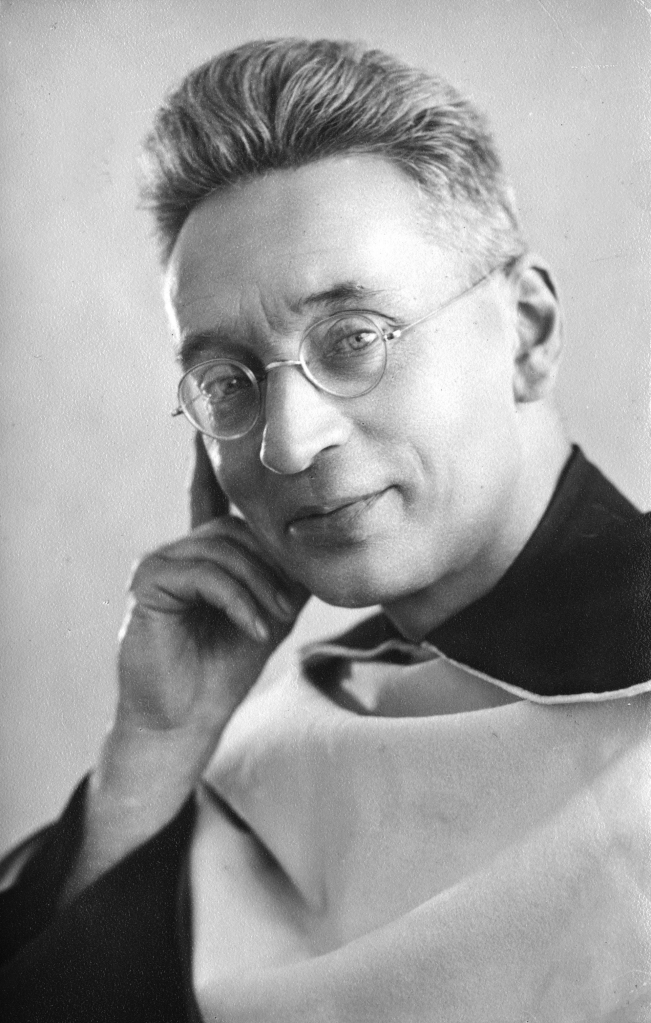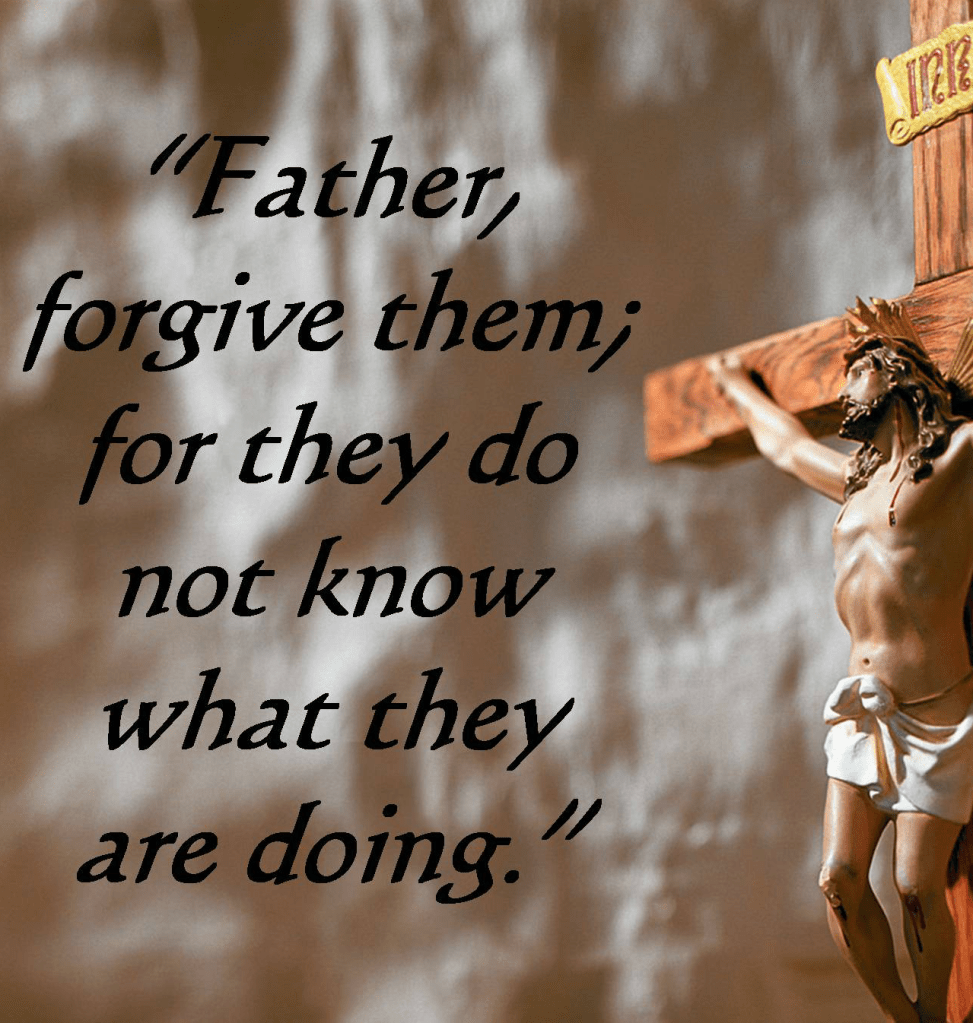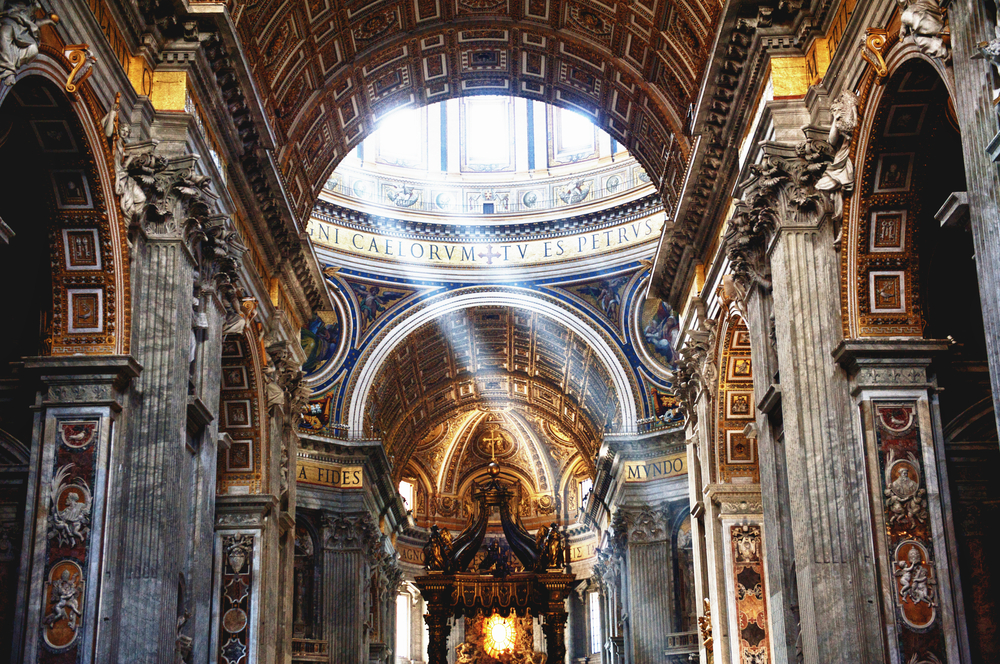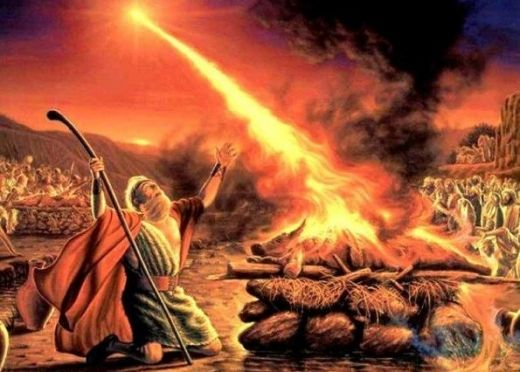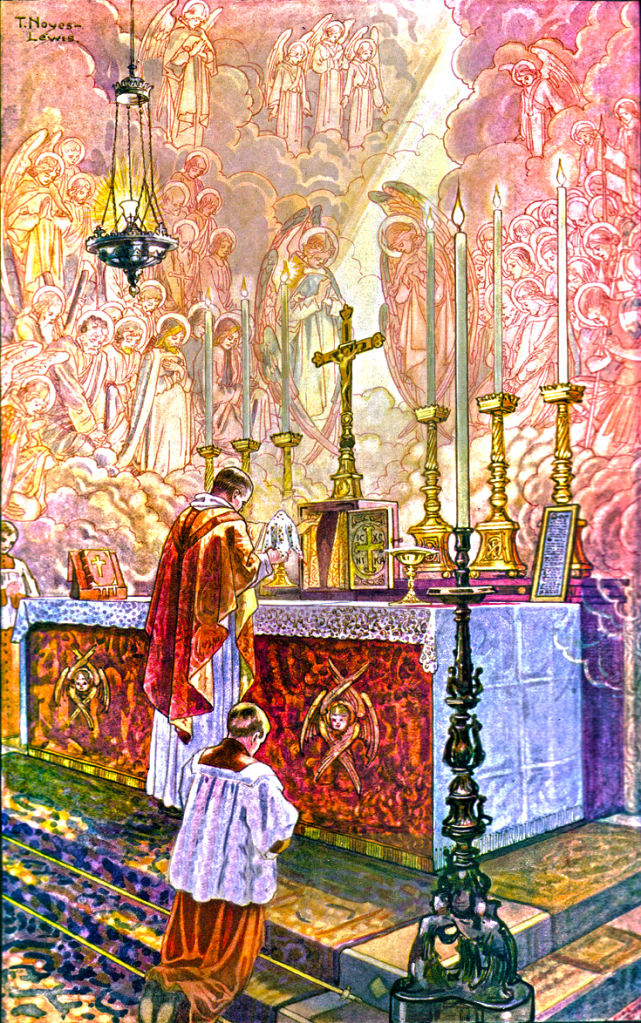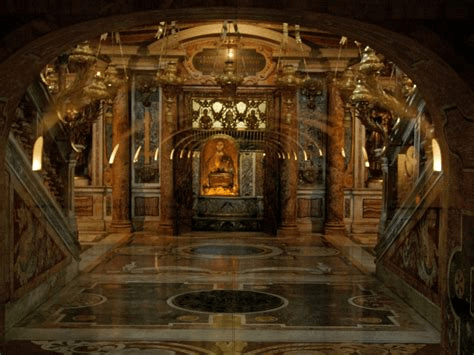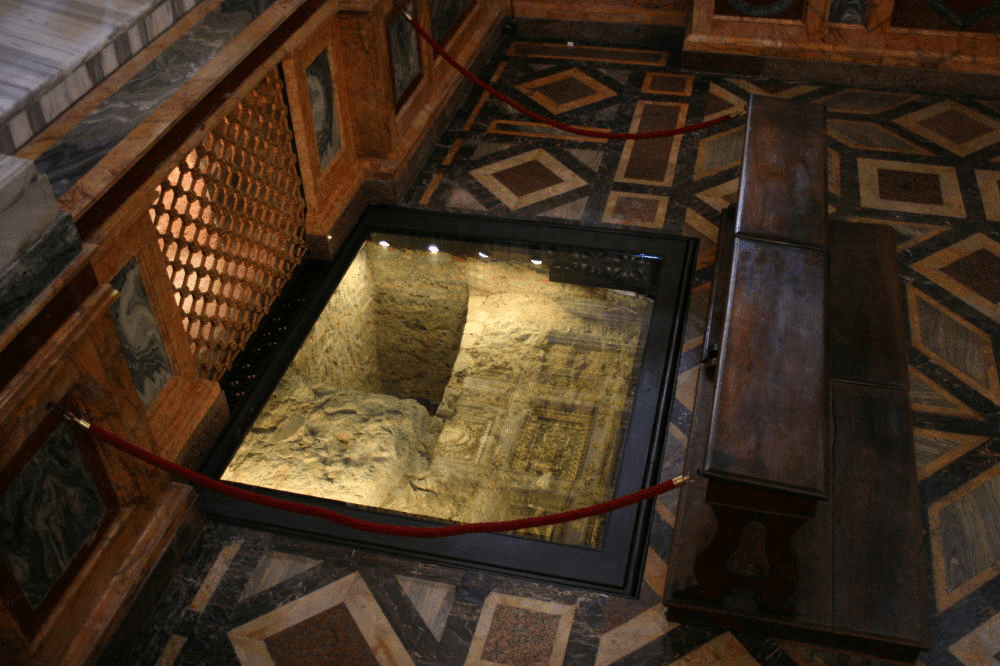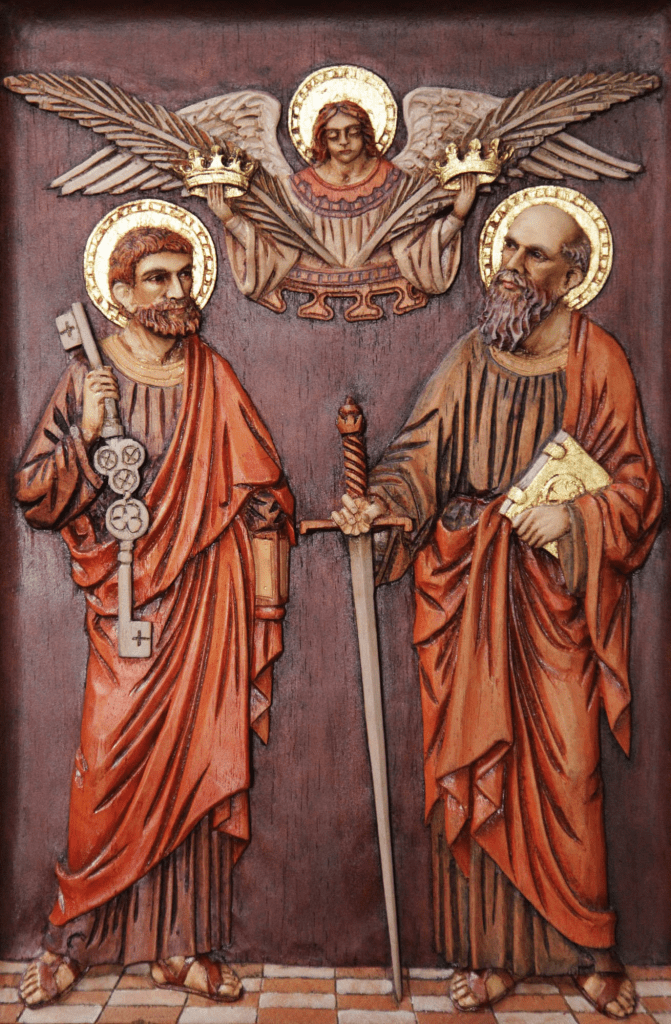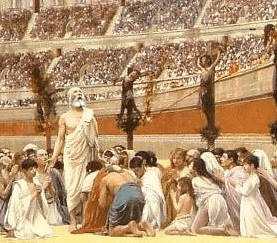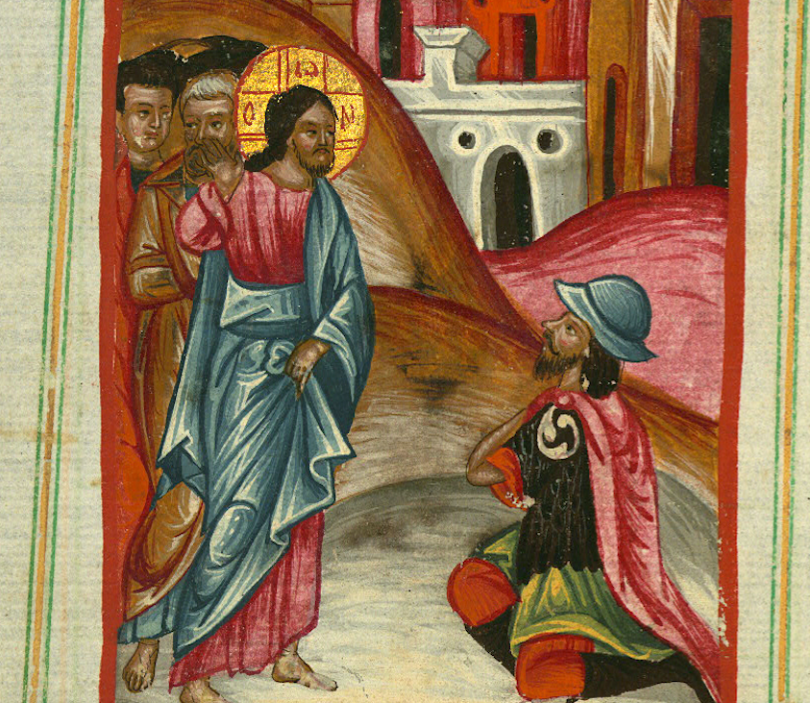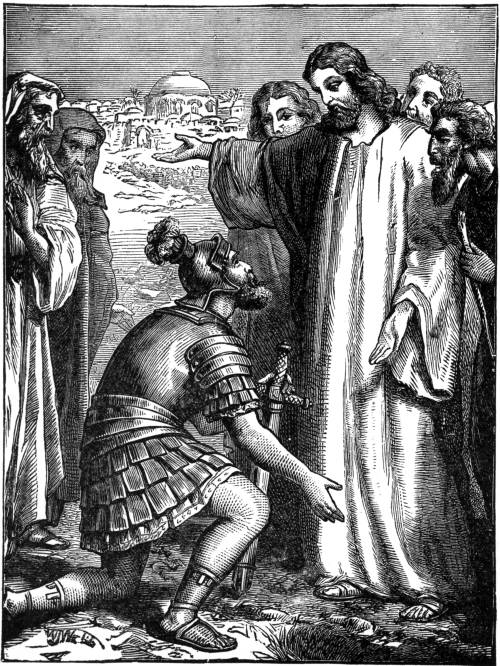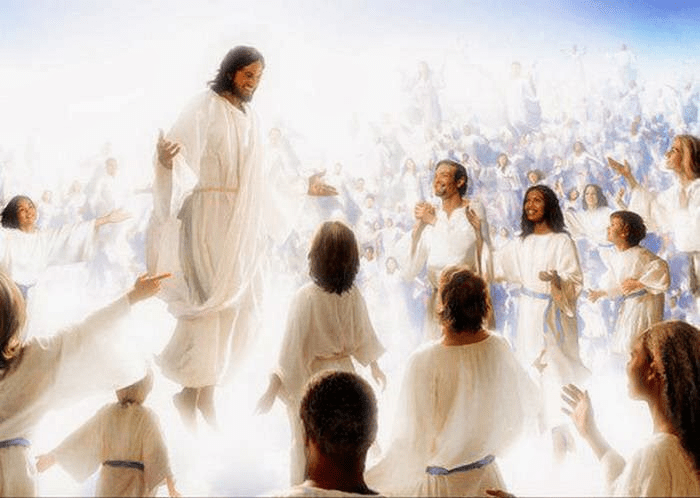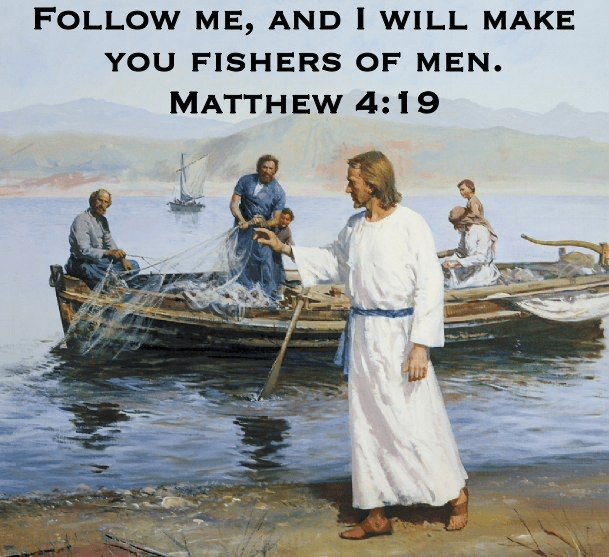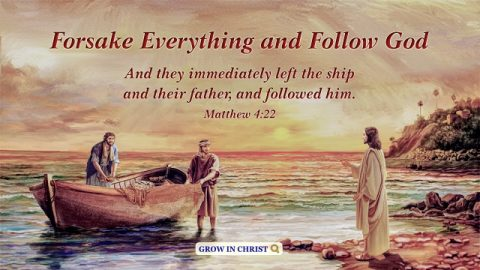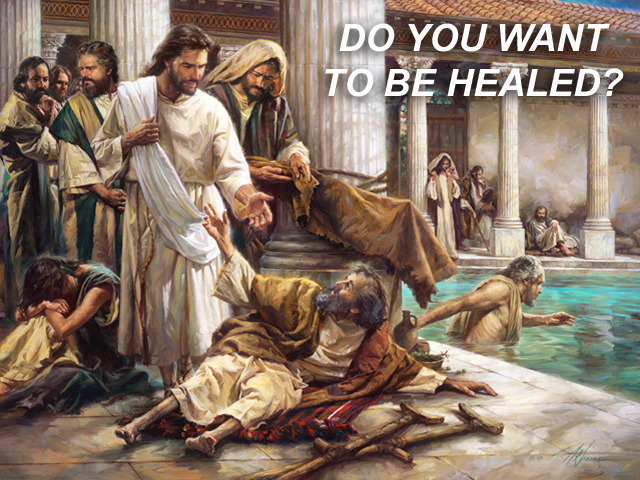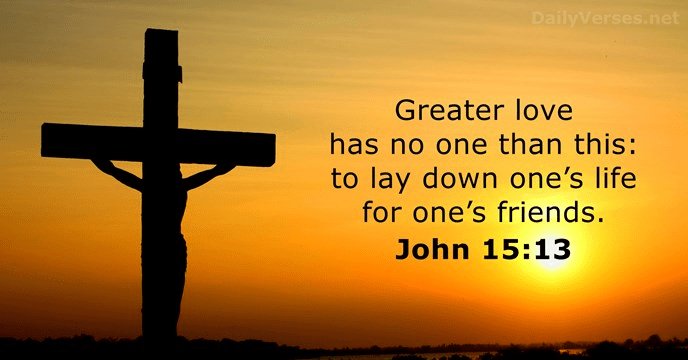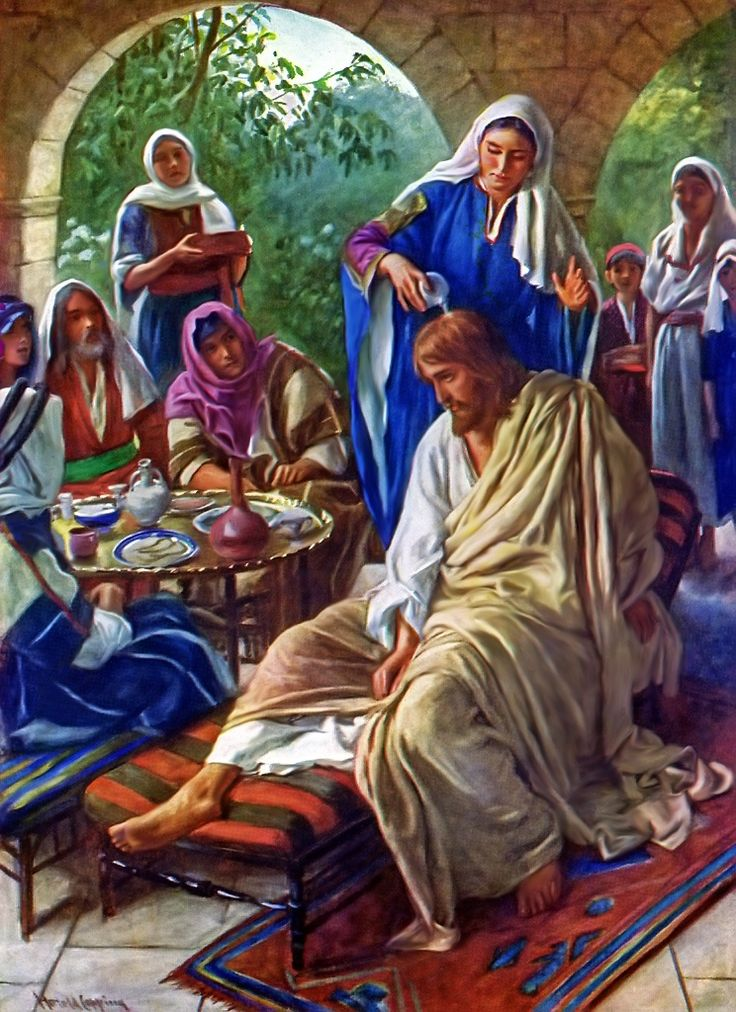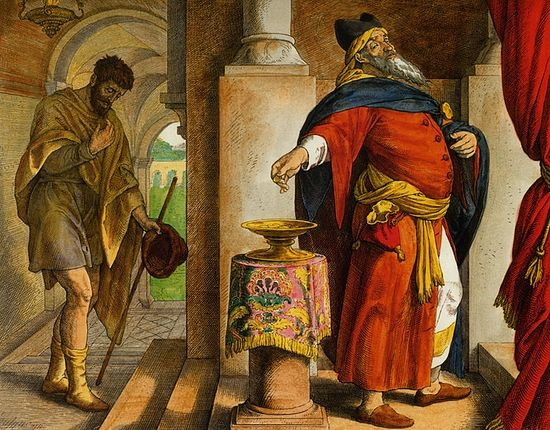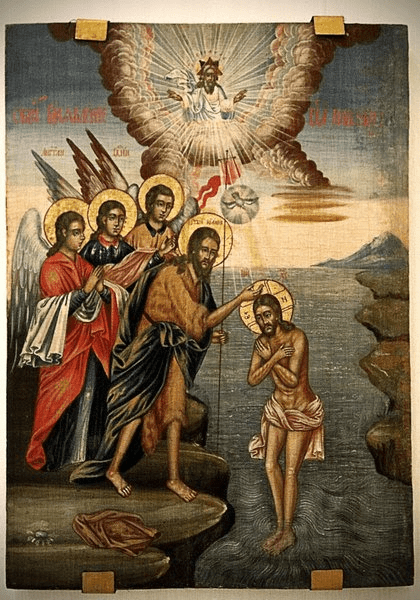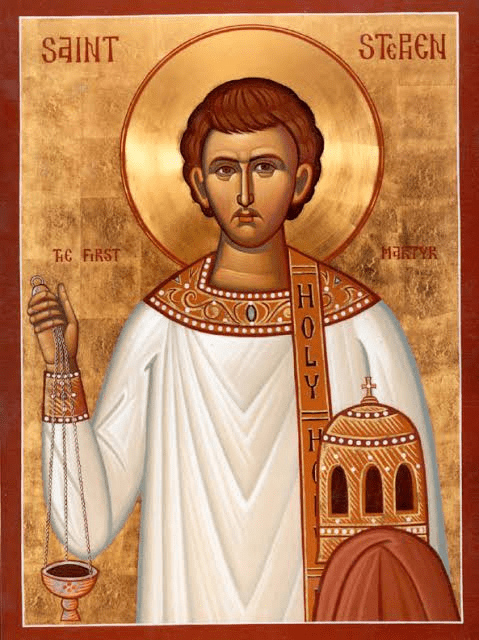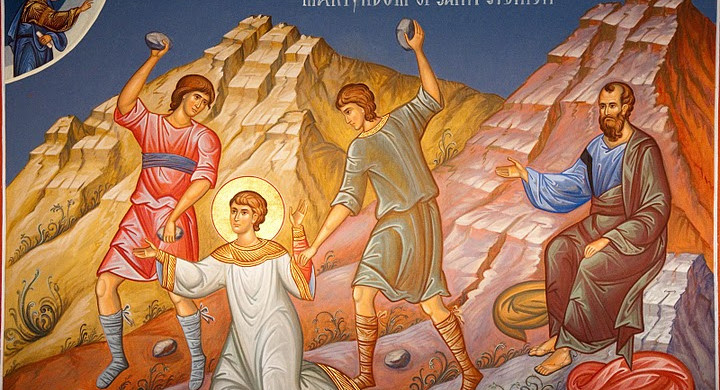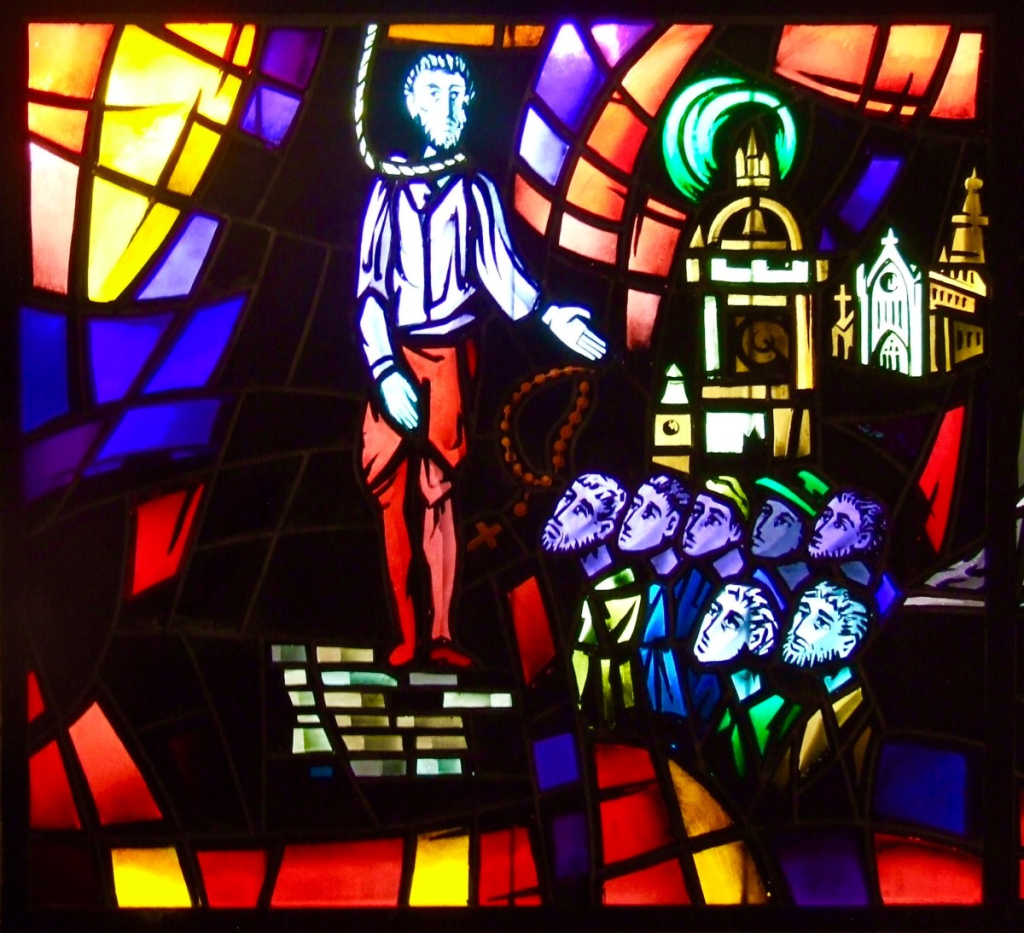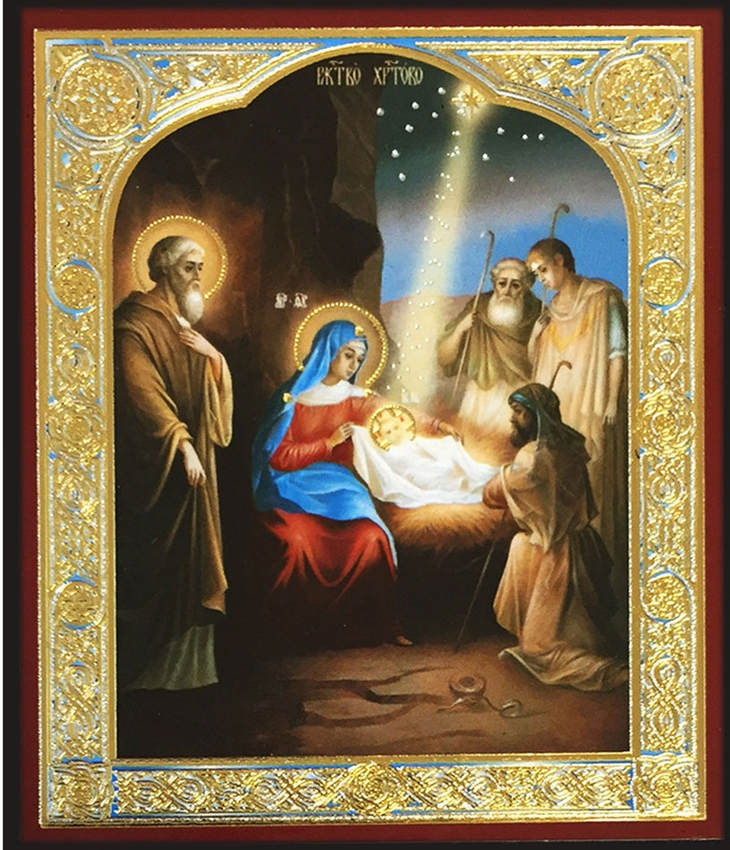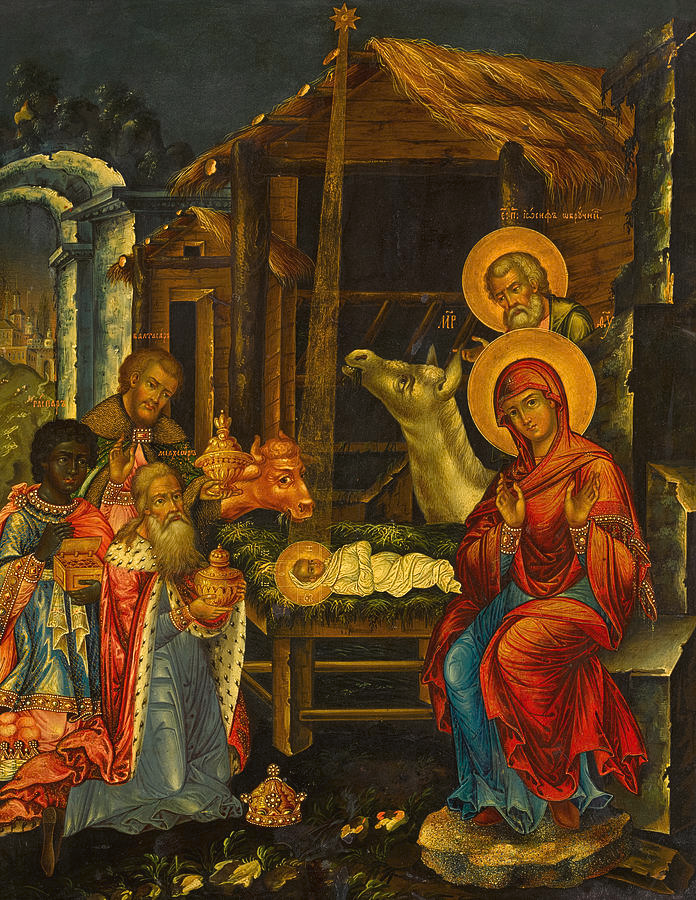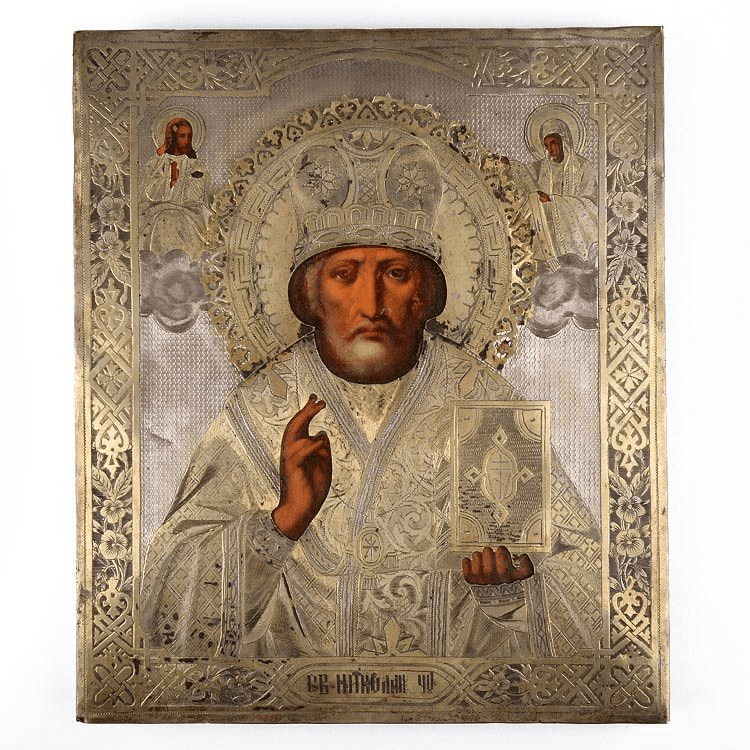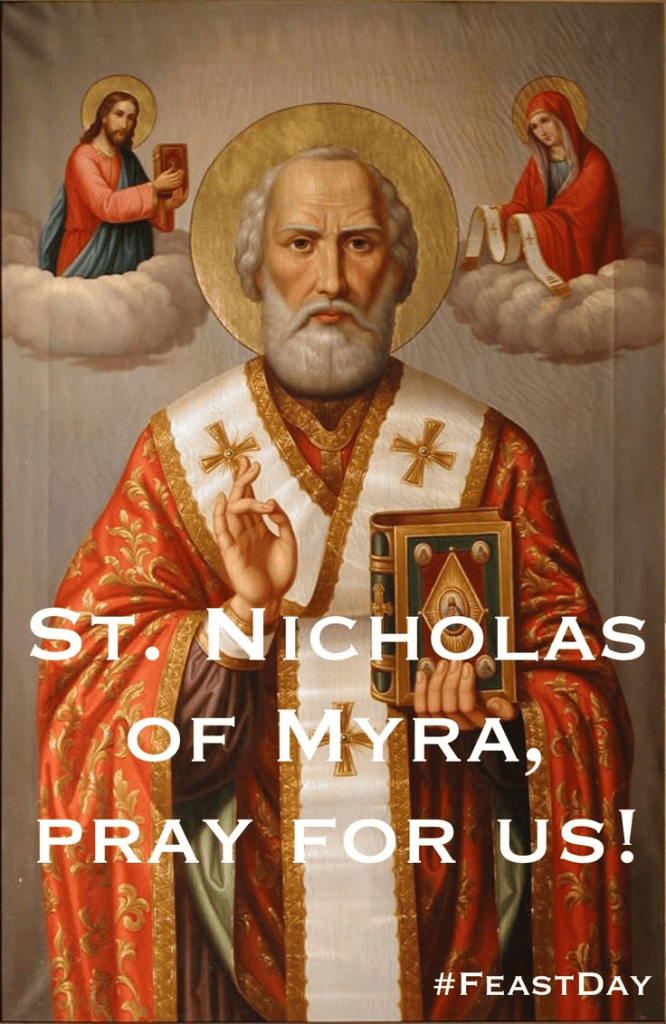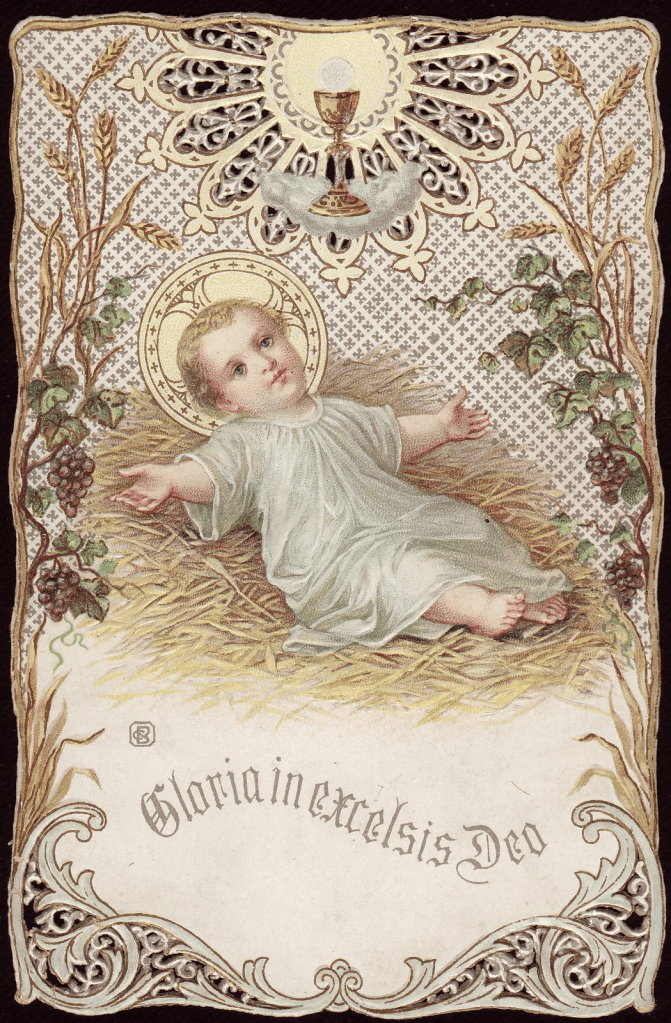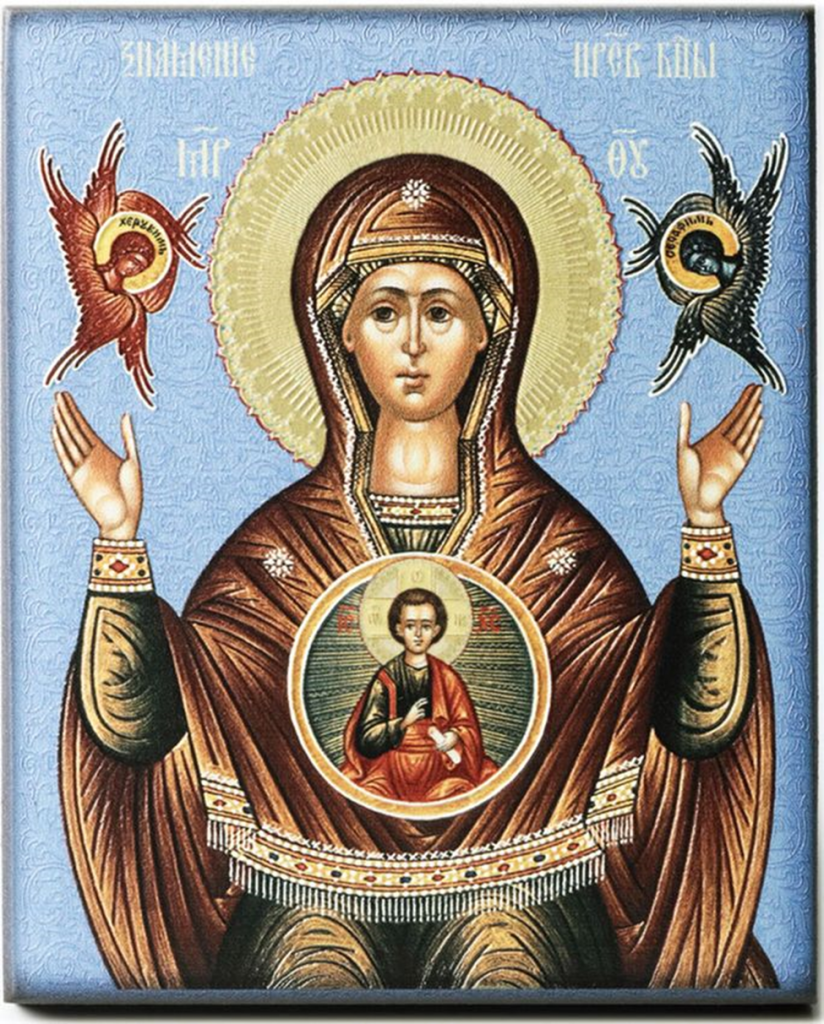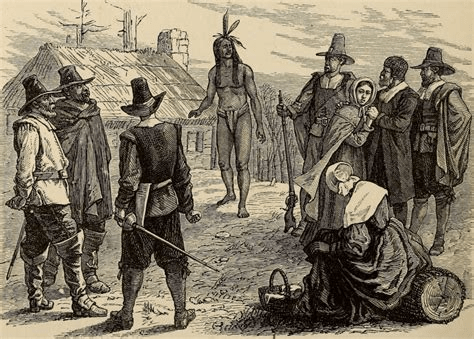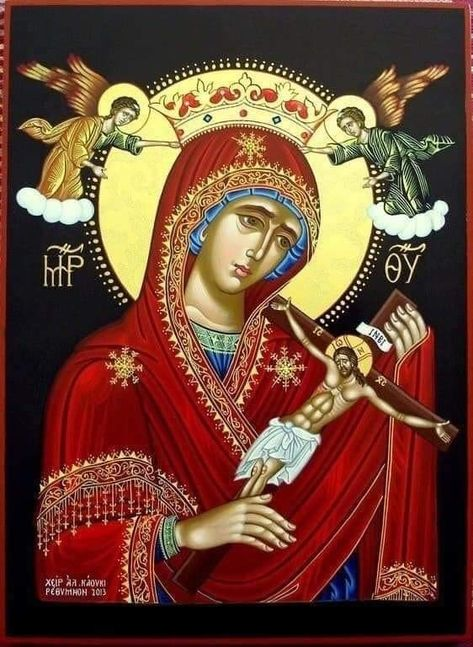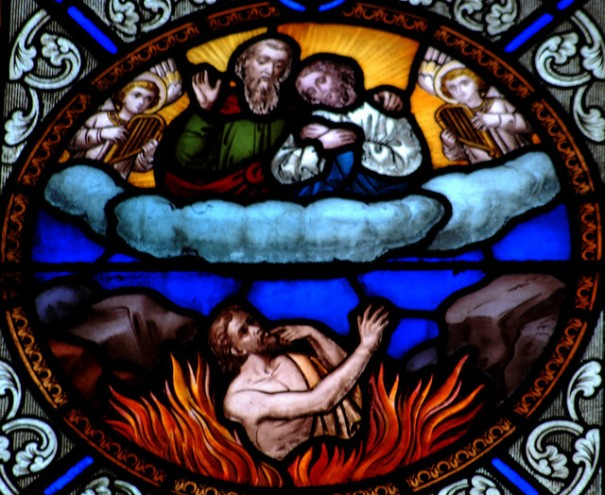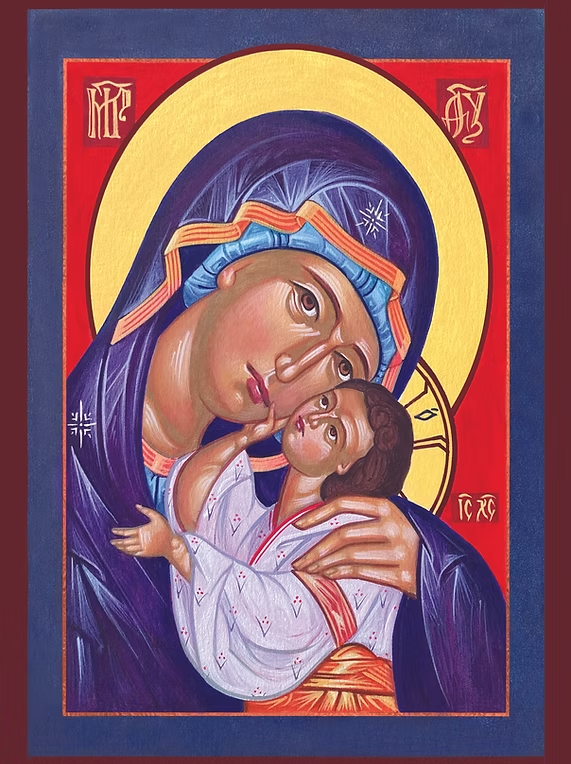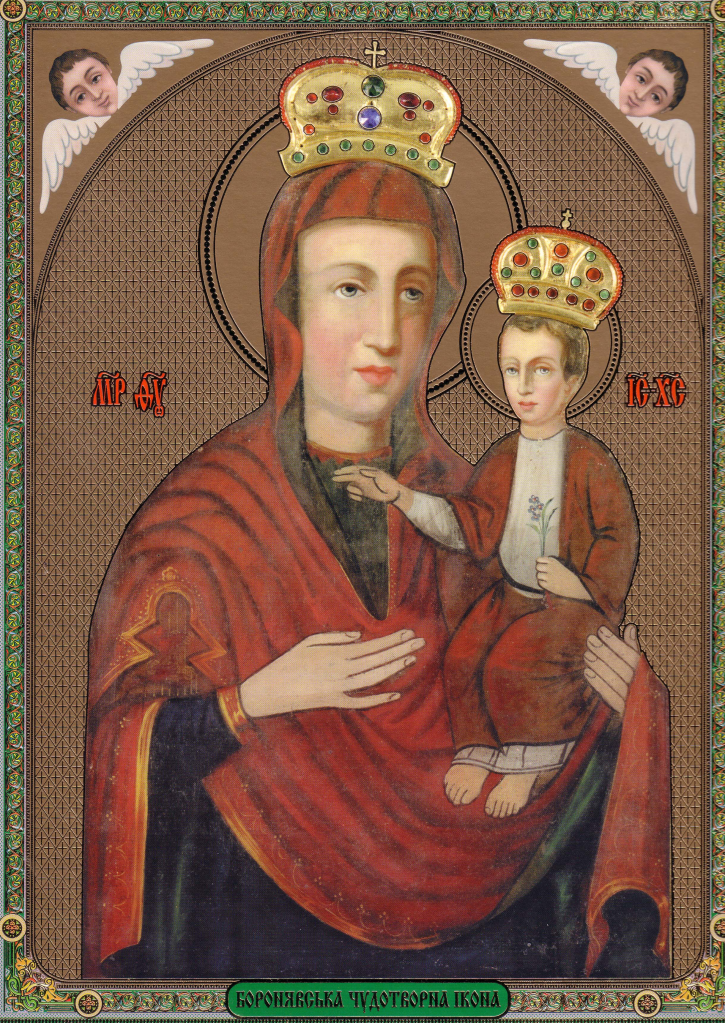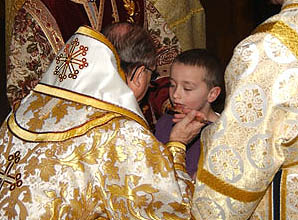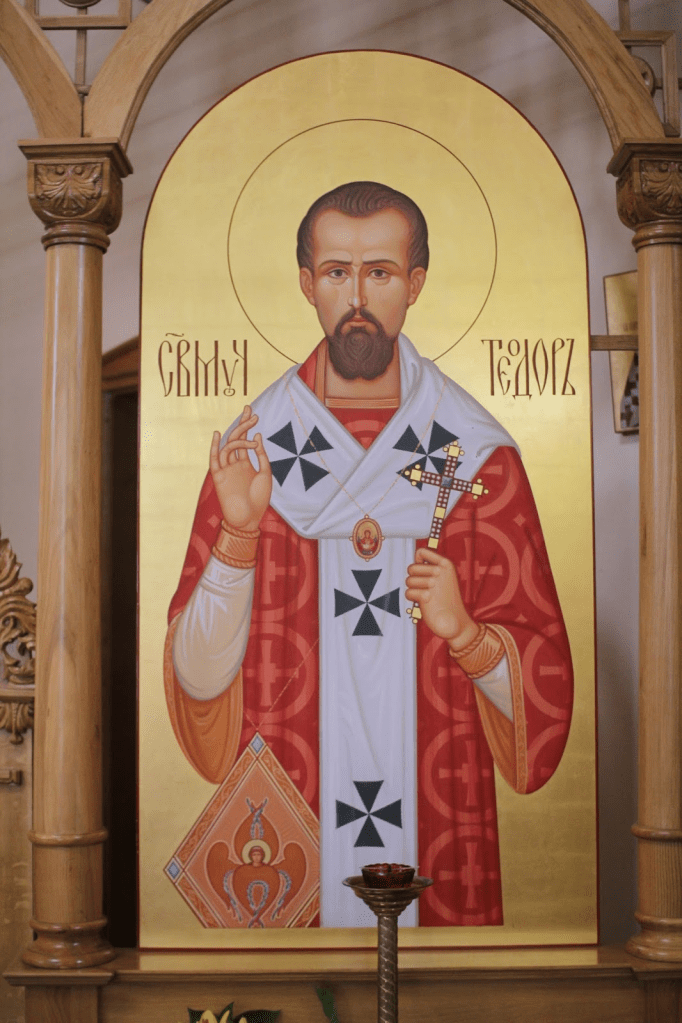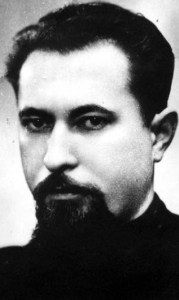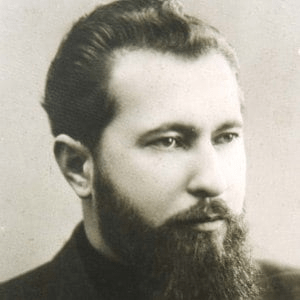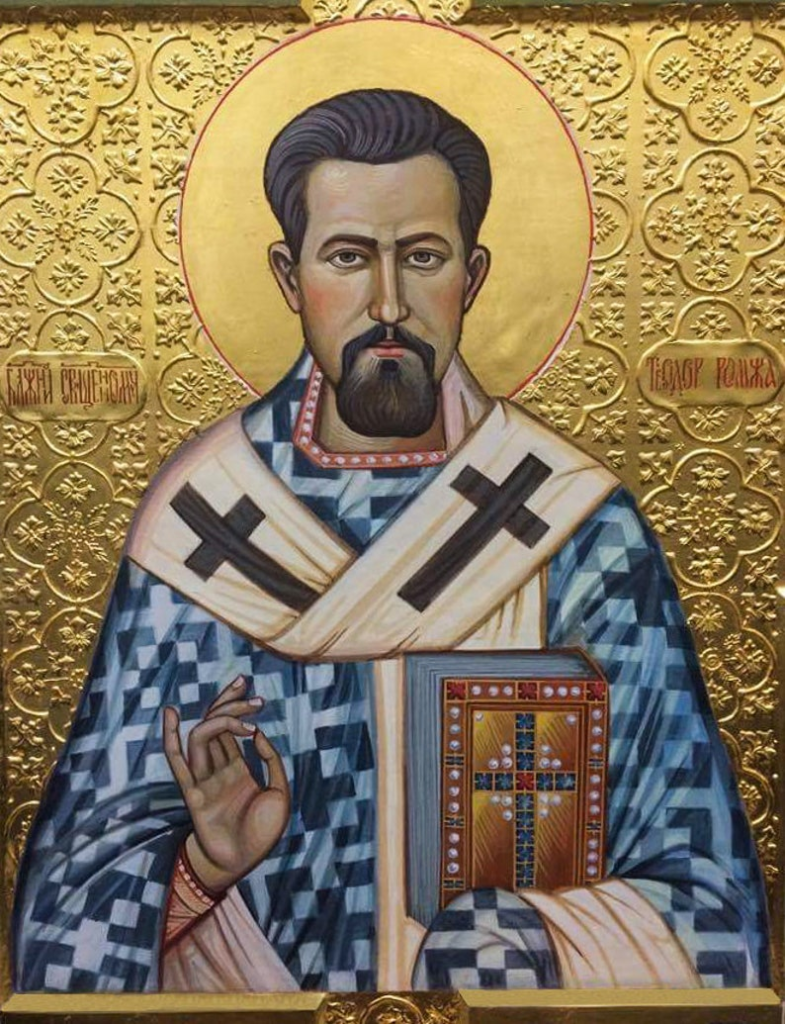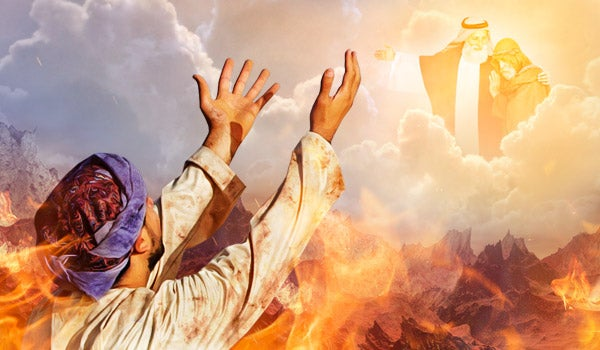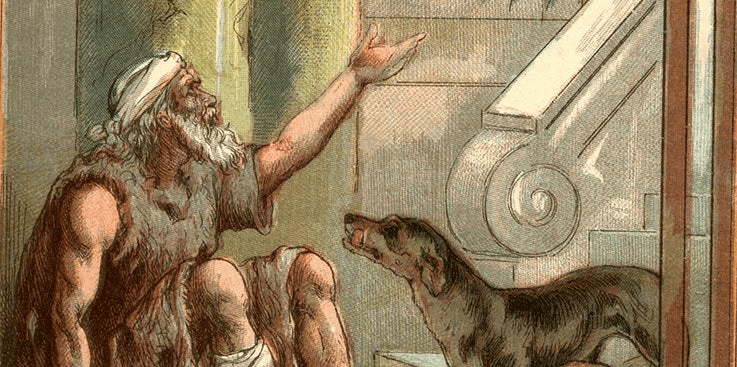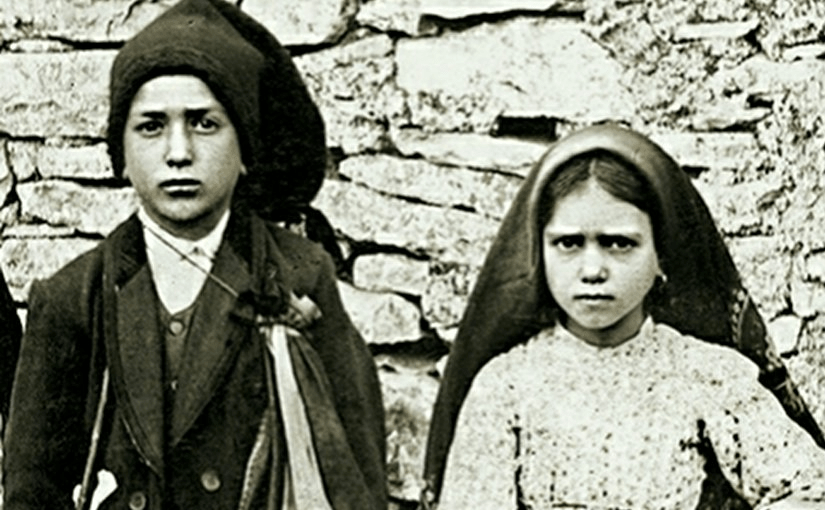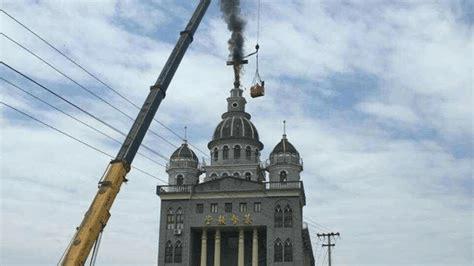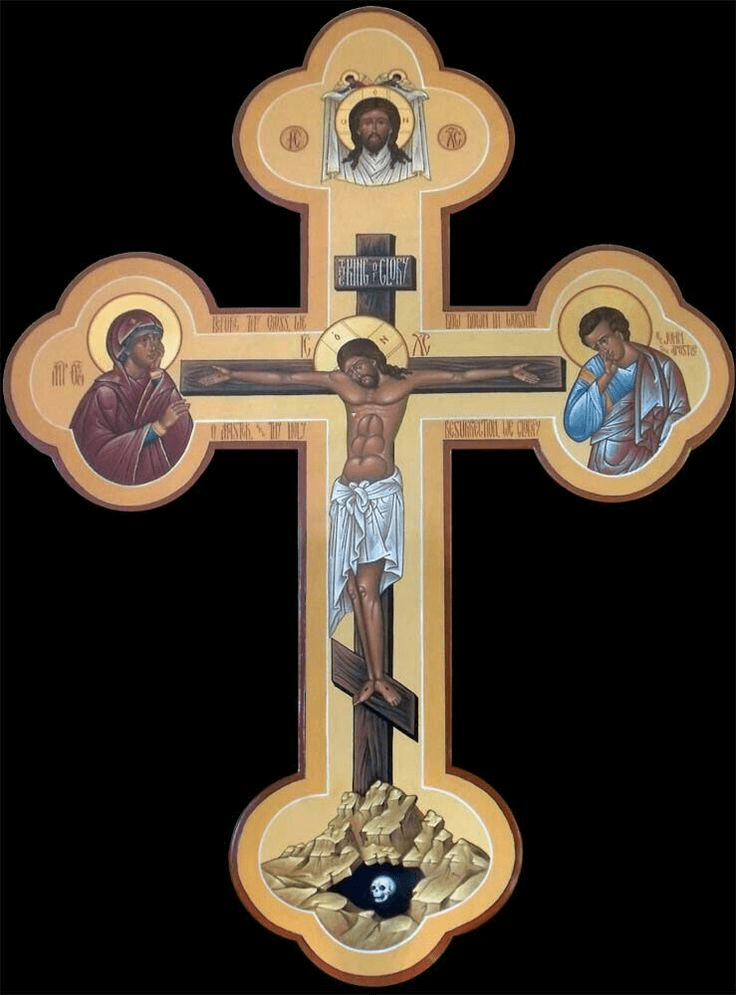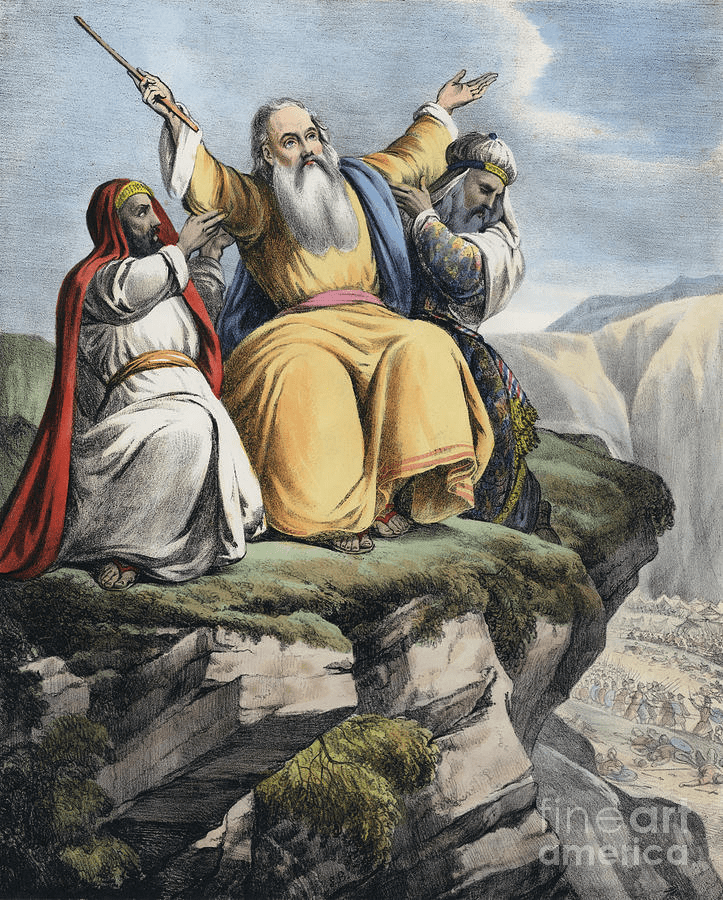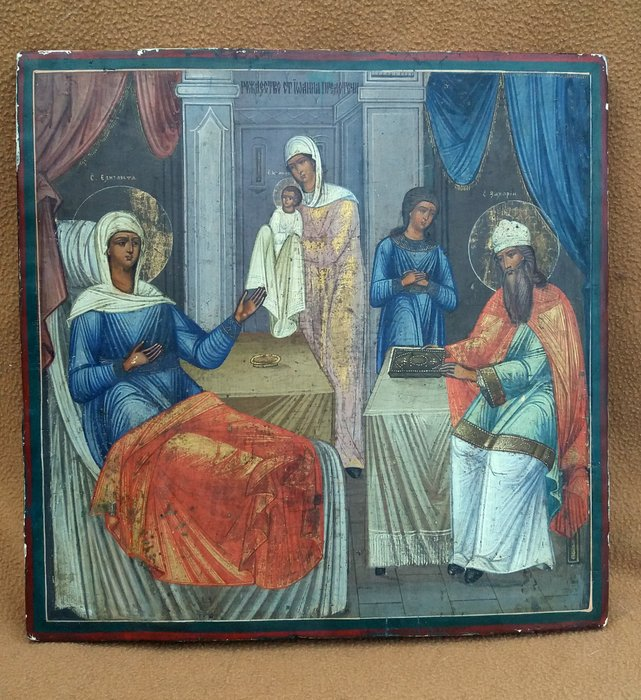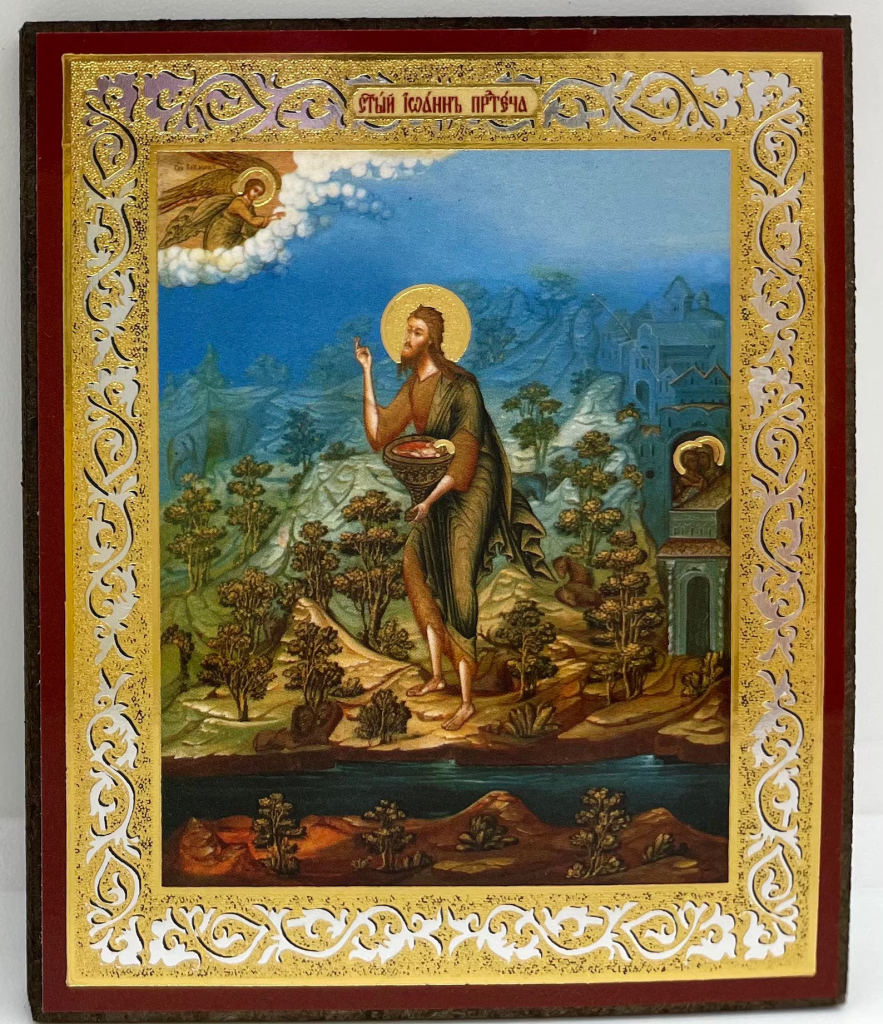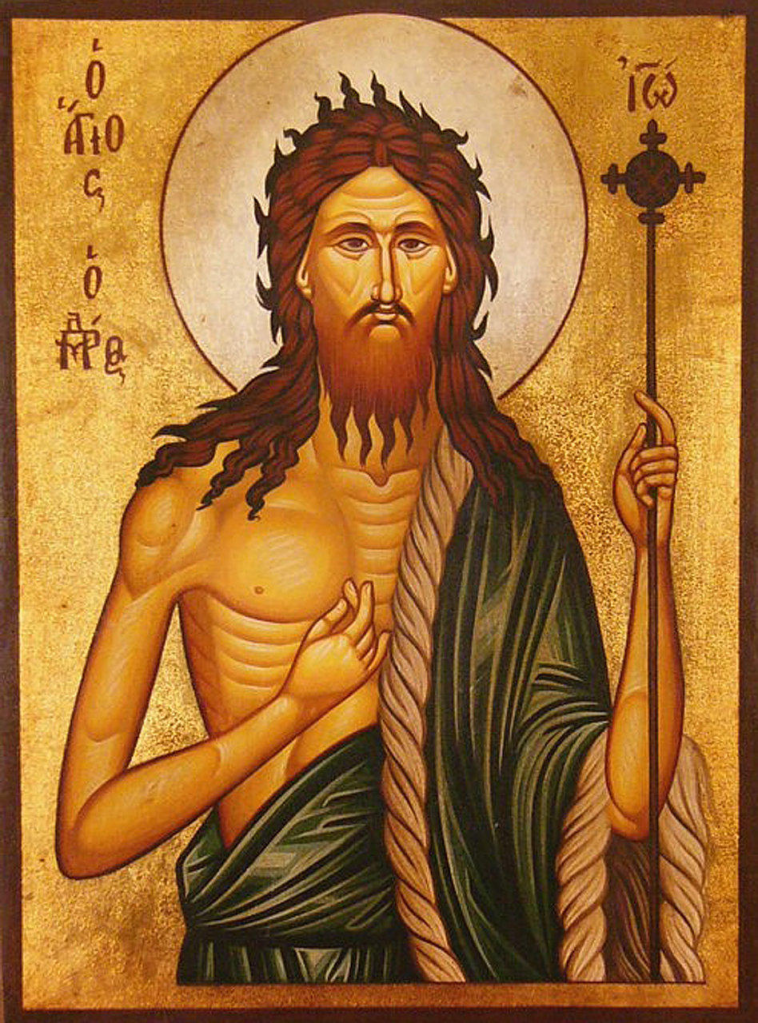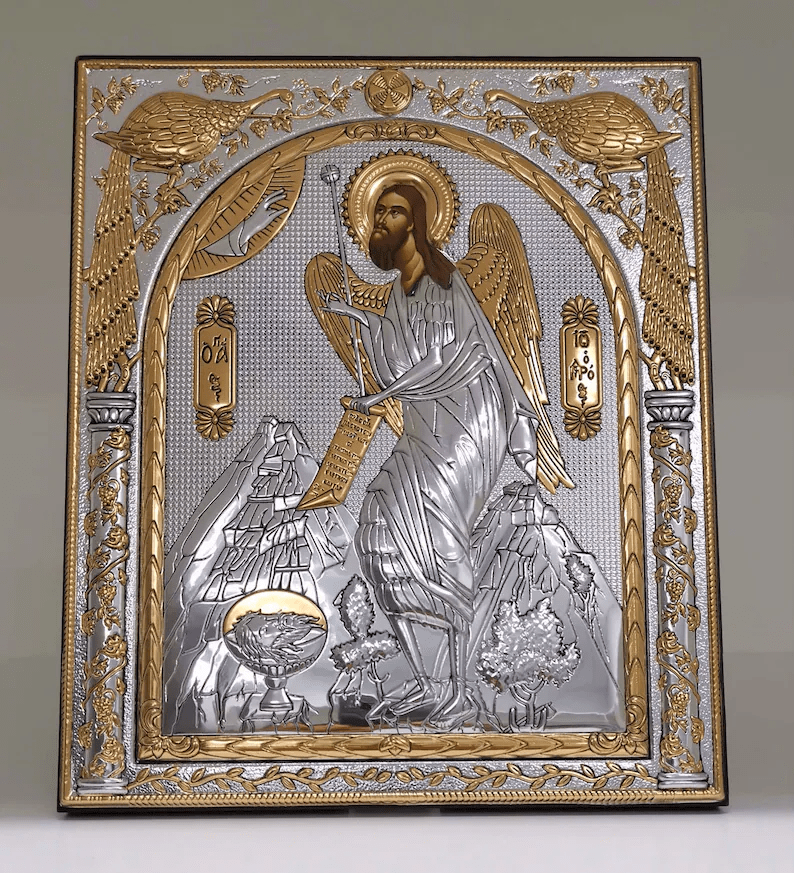In the Letter to the Romans today, we heard this sentence from Saint Paul: Hope does not disappoint, because the love of God has been poured out within our hearts through the Holy Spirit who was given to us. As Catholic Christians, we must be a people of hope, a people rooted in the trust of the Holy Spirit. One of my teachers in seminary emphasized to us that at the end of each Divine Liturgy, we should have felt God’s love, and as priests, we should have prayed, preached, and celebrated in such a way that the congregation would go out knowing that they were loved by God. Saint Paul told the Romans that they would know God’s love because it had been poured into their hearts through the power of the Holy Spirit.
The Holy Spirit works in different ways in the Church – it is through the power of the Holy Spirit that the Gifts about to be brought out in the Great Entrance are transformed in substance from bread and wine into the Body and Blood of Christ. It is through the Holy Spirit that we receive the Seven Gifts in the mystery of Chrismation or Confirmation: wisdom, understanding, counsel, fortitude, knowledge, piety, and reverence of God. The Holy Spirit is at work in all of the Holy Mysteries of the Church, but also the Spirit is at work in our own personal spiritual lives.
We saw this living Spirit of God at work on Thursday when two men received the mystery of holy orders at the hands of two bishops at this altar – Deacon Joshua Johnson, who will be ordained a priest for the military archdiocese next year, and our own Father Thomas Donlin. Father Thomas is the fifth man from this congregation to receive ordination to priesthood; two women have professed their vows as Dominican nuns; one woman is discerning a vocation with the Poor Clare nuns; two women were the wives of priests; and a sixth man, Deacon Moses Pavel Blain, will be ordained to priesthood at the end of this month at Saint Michael’s abbey in California. These vocations are surely the result of the faithful years of prayer by our parishioners who have hosted the Vocation Icon in their homes, and it is remarkable that a parish which has never had more than 95 households at any time has produced this many vocations in 20 years. There is not another parish in the eparchy of the Holy Protection of Mary that can come close to this record. What a gift of God that in our fiftieth year we have two priests being ordained and one woman discerning a call to cloistered religious life – it is a real affirmation to all of us that we are fortunate enough to have people who hear God’s call and respond to it.
Doing so in the modern world is difficult – as Father Thomas is aware, American society has changed drastically in the last 43 years since I was ordained, and the moral and spiritual changes have not necessarily been good ones.
Father Thomas, and Deacon Tyler who will soon be ordained a priest, I ask you to consider these particular points. Our Byzantine Catholic Church stands at a crossroads today – as priests, as ministers of the Gospel, as stewards of the Holy Eucharist, as spiritual fathers, as future pastors, you face a challenging time. We can focus on the negatives of our Church’s current state in much of the country, and serve a declining population until we shut the doors, or we can go forward and focus on what is happening that is positive and bring souls to Christ.
The teenagers of today are more tradition-minded, and more religiously curious, than those of ten years ago – our high school group here has soared from a starting base of six students to 18 in three years. Young people want to be challenged, and they want a faith that is robust and healthy, not weak or empty, a Church that gives answers and is unafraid of science or technology.
Many of our Byzantine rite churches have declined in membership since the pandemic, but not this parish, which has actually seen growth and has been blessed to continue to receive converts and reverts to the faith: souls are searching for the fulfillment of Christ’s promise that He will be with us until the end of this age, and if you open your doors to people of any background, of any age, your parishes will grow and flourish as those people invite more souls.
Covid devastated parishes – but we were all forced into the 21st century by having to use YouTube, Instagram, and every possible kind of digital and social media. You will have to keep doing that as now an online presence is essential for proclaiming the Good News to the world. Our videos are watched by people from all over, and it is astonishing to discover our new reach to souls.
Covid seriously affected young adults, who are more isolated and depressed than ever before, but who are also searching for small communities, answers to their spiritual questions, and affirmation that they are valued and wanted by God and His Church. Like Saint Paul in his First Letter to the Corinthians, you will have to be able to say: I have become all things to all men, so that I may by all means save some. I do all things for the sake of the gospel, so that I may become a fellow partaker of it. You will have to continue to study, read, interact with fellow priests of other ritual Catholic Churches, in order to learn more and be able to reply when it’s Ask A Priest Anything night. Believe me, people have lots of questions today, and are truly looking for answers. We can deliver souls from darkness by being willing to listen, and walk the journey of faith with them.
Father Thomas, on the day that your mother pressed the icon of Our Lady Helper of Mothers to her stomach, she came to this church in distress at the news that her baby had probably died, but she came with hope that the Mother of God would intercede for her and for you that you would live – and here we are, celebrating your ordination. Our Lady has interceded for you and protected you, living up to her titles as Helper of Mothers and Mother of Perpetual Help. She is also the Mother of the Clergy, and if you, Deacon Tyler, and seminarians turn to her regularly in prayer, and strive to be a son of Mary as well as a son of the Church, then all will be well in your priesthood.
We are, as I said at the beginning, a people of hope. Be men of hope, you and your fellow students. Be men on fire with the power of the Holy Spirit. Rejoice that you are given the privilege of providing the Holy Eucharist for the People of God, baptizing infants and converts alike, that you will be able to serve people in Confession, anoint the sick and dying, unite couples in matrimony. Pray for the grace to stand firm on the rock of Peter while the storms of rapid change and doubt try to batter the Church, and pray for the courage to imitate Bishops Romzha, Gojdich, and Hopko and so many other priests and their families who remained in the Catholic faith in the communist bloc. Hold fast to the cross of Jesus Christ, recognizing that you are going to have bad days as well as good ones, harsh critics as well as supporters, and know that through Jesus’ Passion and Resurrection you have access to the hope of the Holy Spirit.
And you parishioners and visitors – when is the last time you thanked a priest for his homily, for his advice in confession, for his taking the time to answer your questions? How often do any of you send a note of encouragement, or offer a special prayer for an increase of vocations and for the consolation of the priests and deacons and nuns who are serving now? What good does it do to stand at the grave and say “Oh, he was a good priest” but never to say that to the man during his years of service? We are so fast to criticize today, but so slow to support or encourage others.
Priesthood is a gift from the Holy Trinity, and a continual source of spiritual surprises. I have never been bored at the altar. I have always found good spiritual results in my own physical and spiritual suffering; I have had to learn to accept my mistakes and errors while not despairing of future ministry. Receiving Holy Communion is an enormous privilege, a gift that is offered to those enlisted in membership in the Body of Christ on earth, the Catholic Church, a privilege that too many people around the world are routinely deprived of because of persecution by governments or a serious shortage of priests far worse than anything Americans know. Continue to pray for vocations, continue to pray for holy Catholic families, continue to pray for men and women to answer God’s call, continue to love one another as Christ has loved us. If we do these things, if we truly work at learning and studying and praying, then all will be well – fail at that, and the Church will suffer.
Father Thomas, Deacon Tyler, students from the seminary, may you hear the voice of God every day of your lives, and may you always be men of hope, men of faith, and men who show the People of God the reality of divine love. And may we as a faith community grow in hope, flourish in faith, and be rooted in love, for the sake of the salvation of souls.
Christ is among us.


